
Our discussion with Dr. Ayesha Al-Qahtani about “The role of the father in instilling language, values, and religion in children.”
The Expert Group Meeting (EGM), organized by the Doha International Family Institute (DIFI), in partnership with the United Nations, Department of Economic and Social Affairs (UNDESA), the International Federation for Family Development (IFFD), and the United Nations Population Fund (UNFPA). The EGMs identify challenges and emerging issues, focusing on the contemporary megatrends and their consequences for families, several aspects of parenting and parenting education, as well as the modalities for the preparations for the 30th anniversary of the International Year of the Family (IYF+30).
The Expert Group Meeting (EGMs) discusses how understanding global families, family trends and policies and family education contributes to evidence-informed decisions, evidence-based policies and programs, and evidence-inspired innovation in countries, communities, and organizations around the world, as well as sharing information and insights and made detailed recommendations framed around research and data collection.

The Doha International Family Institute (DIFI), a member of Qatar Foundation, in partnership with the United Nations Department of Economic and Social Affairs (DESA), are organizing an Expert Group Meeting (EGM) on “The Intertwined Impact of Technological Transformation and Climate Change on Families in Oceania: Navigating the Policy Response”, which will be held in Brisbane, Australia, 30-31 May 2023. This meeting marks a pivotal moment in preparing for the 30th anniversary of the International Year of the Family (IYF+30), aiming to analyze the impact of global megatrends, focusing on technology and climate change on familial dynamics in Oceania region, with the emphasis of exploring the policy implications.
The EGM is being organized and co-hosted with the Institute for Social Science Research (ISSR), The University of Queensland. ISSR is one of Australia’s foremost leaders in equity and sustainable futures, undertaking solution-focused social science research and evaluation to achieve positive social impact in a changing environment.
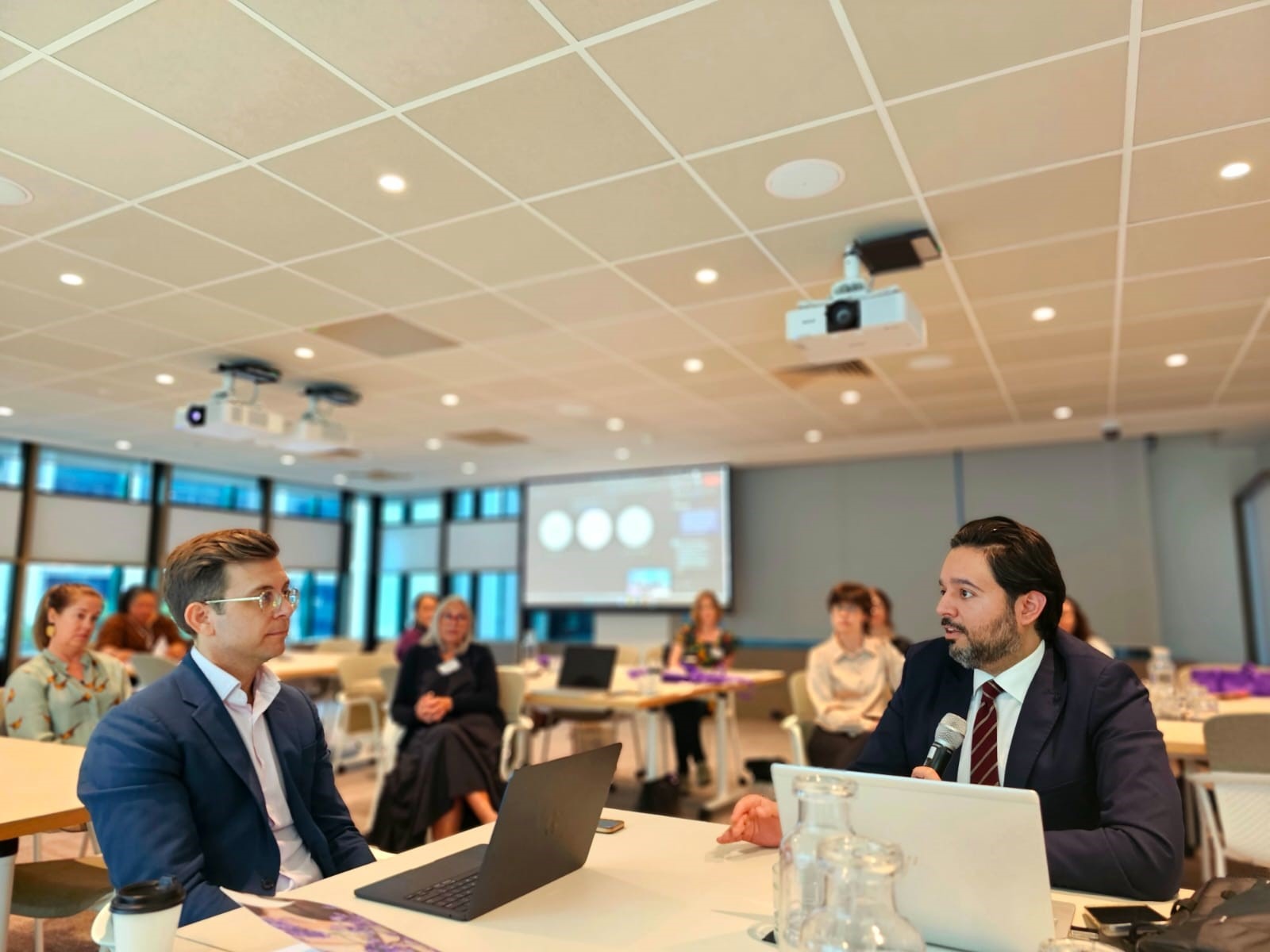
DIFI with the support from DESA is at the forefront of international efforts to commemorate the 30th anniversary of the International Year of the Family (IYF+30). This global initiative culminates in the IYF+30 Conference in Doha, scheduled for October 29-31, 2024.
This EGM is building upon the IYF+30 preparatory regional EGMs focused on Arab, African, Asian and Latin American families, organized by DIFI, DESA, and the International Federation for Family Development (IFFD).
The Oceania EGM seeks to explore the complex relationship between technological advancements, climate change, and family structures in Oceania. By gathering esteemed regional experts and practitioners, the meeting aims to generate insightful recommendations to inform policies that promote holistic well-being amidst emerging megatrends, focusing on technology and climate change.
In June 2020, an EGM organized by the Focal Point on the Family, UNDESA identified four key mega-trends impacting families in the lead-up to the 30th anniversary of the International Year of the Family (IYF+30). These trends are:
Technological Changes: Advancements in technology impact families in diverse ways. Fertility and assistive reproductive technologies are changing family formation, while increased telecommuting due to the pandemic has redefined learning, work, and family dynamics, with potential long-term effects on roles and responsibilities.
Demographic Trends: Family structures are evolving globally. While couples with children still represent the majority of households, single-female-headed households are increasing. Age of marriage rises, and child marriage remains a challenge. Additionally, aging populations and declining fertility rates present challenges for families and economies.
Migration and Urbanization: Migration, often driven by the desire to improve family well-being, necessitates addressing factors like access to well-paid jobs, food, healthcare, and education. Urbanization, as a social process, redefines family roles, responsibilities, and structures, impacting domestic dynamics, location choices, and work arrangements.
Climate Change: Climate change presents multifaceted challenges for families. Droughts, floods, and extreme weather events negatively impact food security and displace families due to resource scarcity and humanitarian crises. This results in lack of adequate shelter, food, and education, particularly for children.
These identified trends highlight the need for comprehensive and multifaceted approaches to address the evolving challenges impacting families across the globe.
The Brisbane Expert Group Meeting will center around the megatrends of technology and climate change, exploring its profound impact on family and community dynamics, interlinkages between the megatrends, and policy responses.
It recognizes the place of the family within a socio-ecological conceptualization, capturing the influence of the individual, the family, community, and structural and environment contexts on people’s lives. It also recognizes that some groups within society are more impacted than others and seeks to challenge entrenched and intergenerational disadvantage.
This plenary session will set the scene for the EGM and explore the unique interlinkages between family, communities, technology, and climate change within the specific context of the region. It will examine current evidence, knowledge gaps, and start to frame potential solutions for how technology can bridge digital divides within families and communities, while also empowering climate action.
The findings and recommendations from the expert group meeting will be reflected in the upcoming report of the Secretary-General to the 79th session of the General Assembly on the preparations for and observance of the thirtieth anniversary of the International Year of the Family.
Four focused sessions will consider the themes in more depth, with short presentations and facilitated discussion across the course of the EGM.
This final session will promote dialogue for participants to share experiences, best practices, and challenges related to climate change, technology, and their impact on families and communities in the region to set forth an agenda for the creation of a sustainable future. Key topics will be:
Moderation: Designated moderators will oversee sessions, guiding group discussions and ensuring active participation from all attendees. Rapporteurs will summarise key points and compile recommendations generated during sessions.
Interactive Approach: primary methods of engagement, fostering dynamic exchanges of ideas and perspectives among participants. The meeting aims to cultivate an inclusive atmosphere conducive to open dialogue and collaborative problem-solving.
In carrying out their commitments under Article 4, paragraph 1 (i), the Parties shall: (a) Promote and facilitate at the national and, as appropriate, subregional and region
Venue: The meeting is scheduled to take place in-person at UQ Brisbane City, 308 Queen Street, Brisbane CBD, from 30th to 31st May 2024.
Attendance: Attendance is primarily in-person, but hybrid online facilities will be provided for some participants.
Recording and photography: Sessions will be recorded to support preparation of the EGM report; CHECK PHOTOGRAPHY.
Language: English will serve as the official working language of the meeting.
Travel and Accommodation: DIFI (Doha International Family Institute) are covering expenses related to travel, accommodation, and local transportation for participating experts. Travel and accommodation queries should be submitted to Ghazal Othman gothman@qf.org.qa.
Catering: Morning Tea and Lunch will be provided to in-person participants on 30 and 31 May; tea, coffee and water will be available throughout both days. An Expert Group Meeting Dinner at Patina, Customs House, 399 Queen Street, Brisbane, will be held on Thursday 30 May for those attending (dinner attendance and dietary requirements must be confirmed by 22 May).

09:30

Brisbane

09:45

Brisbane
Session 1
Opening Remarks
Prof. Lisa McDaid, Director, Institute for Social Science Research (ISSR), The University of Queensland
Dr. Khalid Al-Naama, Research and Policy Director, Doha International Family Institute (DIFI), Qatar Foundation
Ms. Renata Kaczmarska, Social Affairs Officer, Focal Point on Family, Department of Economic and Social Affairs, United Nations (UN DESA)

10:15

Brisbane
Session 1
Prof. Ilan Katz, UNSW Sydney, Integrating digitalisation, environment and service policies; Implications for active ageing and family structures and relationships of migrant and minority families
Dr. Anne Cleary, Mosaic Insights, Community-led approaches to building resilience – the policy gaps and opportunities
Dr. Susan Beetson, The University of Queensland, Ballardong Whadjuk Culture hubs – Thinking about past and present Knowledges to envision regenerative future generations
Chair:Prof. Lisa McDaid

11:30
Morning Tea and Networking

12:00

Brisbane
Session 1
Dr. Kim Osman, Queensland University of Technology Bridging the low-income families digital divide
Dr. Aimee Hourigan, Western Sydney University Culturally-ground conceptualisations of digital technology and its role in supporting social and economic development within/for/by Samoan communities
Dr. Susan Beetson, The University of Queensland, Ballardong Whadjuk Culture hubs – Thinking about past and present Knowledges to envision regenerative future generations
Moderator:Prof. Daniel Angus
Rapporteur:Prof. Greg Marston

13:15
Lunch

14:35

Brisbane
Session 1
Assoc. Prof. Nicholas Carah, The University of Queensland What are we paying attention to? The commercial determinants of what we see and how we feel on digital media platforms
Prof. Michael Dezuanni, Queensland University of Technology Media literacy, misinformation, and social cohesion
Moderator:Ahmed M. Aref
Rapporteur:Prof. Greg Marston

15:30

Brisbane
Session 1
Assoc. Prof. Tamasailau Suaalii-Sauni, University of Auckland, Generative Co-Design Policies and Practices involving Vulnerable Pacific Communities
Prof. Greg Marston, will summarise the key messages and recommendations from the presentations. Meeting attendees discuss the recommendations.
Moderator:Dr. Laurel Johnson

16:45
End of Day 1

18:00
Dinner, Expert Group Meeting Dinner (Patina, Customs House)

08:45

Brisbane

09:00

Brisbane

09:15

Brisbane
Session 1
Assoc. Prof. Rebecca Olson, The University of Queensland, Framing support for parents managing their own and children’s eco-anxiety
Assoc. Prof. Alina Morawska, The University of Queensland, Parenting and Climate Change
Moderator:Dr. Fiona Charlson
Rapporteur:Prof. Tim Reddel

10:30
Morning Tea

10:45

Brisbane
Nathan Wiltshire, Australian National University, Across the chasm? Towards intergenerational empathy and solidarity on climate change
Prof. Jenevieve Mannell, Institute for Global Health, UCL, Associations between exposure to climate-related disasters and women’s experience of intimate partner violence in rural Samoa
Moderator:Ms. Renata Kaczmarska
Rapporteur:Prof. Tim Reddel

12:00
Lunch

13:00

Brisbane
Prof. Tim Reddel, will summarise the recommendations. Meeting participants discuss the recommendations.
Moderator:Dr. Laurel Johnson

14:00

Brisbane
Ahmed M. Aref, DIFI
Ms. Renata Kaczmarska, UN DESA
Prof. Lisa McDaid, ISSR
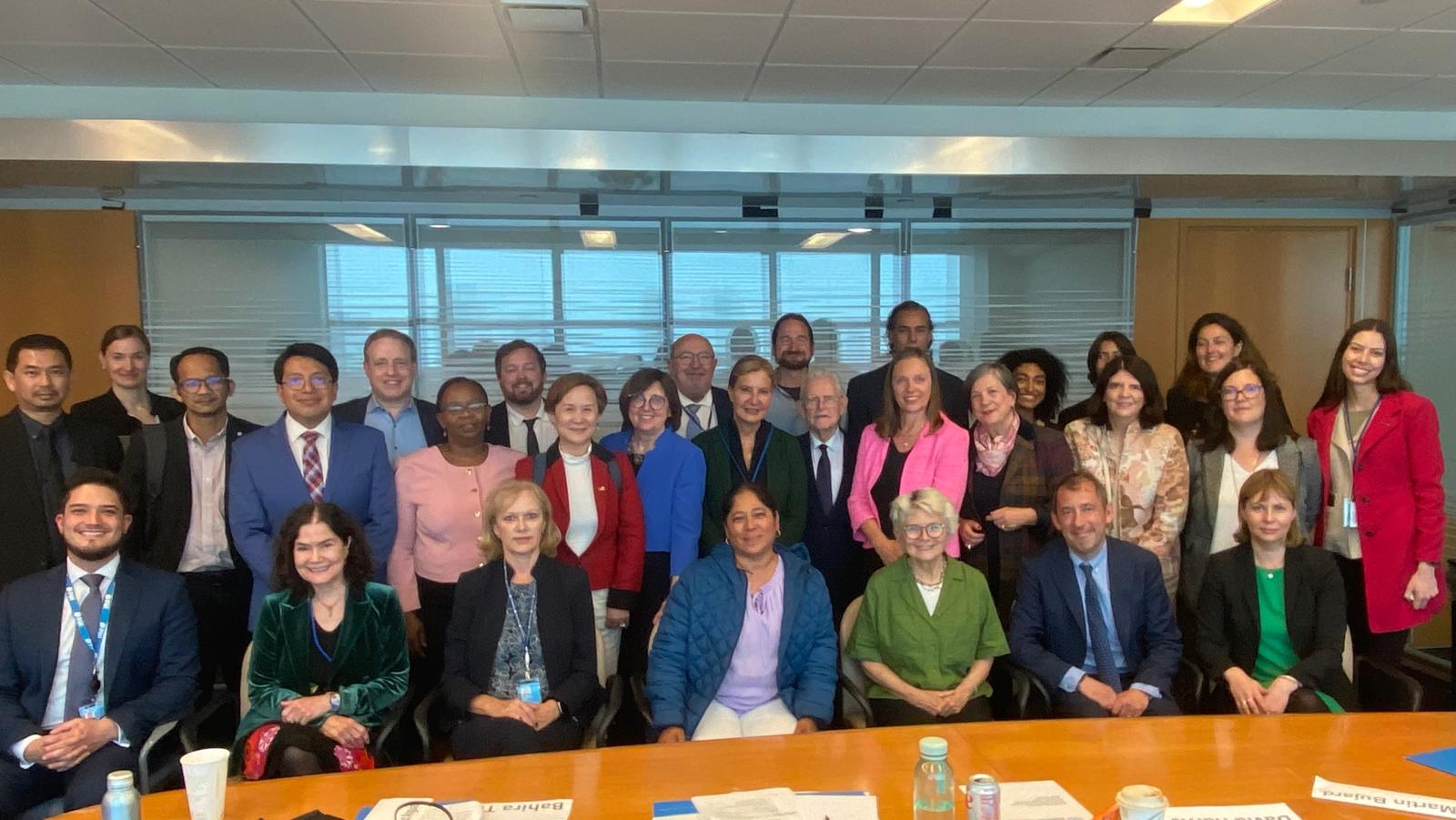
The Division for Inclusive Social Development (DISD) of the Department of Economic and Social Affairs (UNDESA) is organizing an expert group meeting on “Families and Climate Change” to be held in New York on 15-16 May 2024.
TIn line with General Assembly resolutions recommending research and analysis of megatrends, this meeting will explore.
Families’ vulnerability to climate change is manifested in the increasing frequency of extreme weather events, including hurricanes, droughts, floods, and wildfires, often leading to displacement, property damage, and loss of livelihoods. Food and water scarcity affects agricultural productivity and water availability, and thus families’ ability to access food and clean water. Changing climate patterns also influence the spread of diseases and exacerbate respiratory conditions, placing additional burdens on families’ healthcare needs.
Moreover, families often rely on industries that are sensitive to climate impacts, such as agriculture, fisheries, and tourism. Changes in these sectors can have economic implications for families’ income and stability.
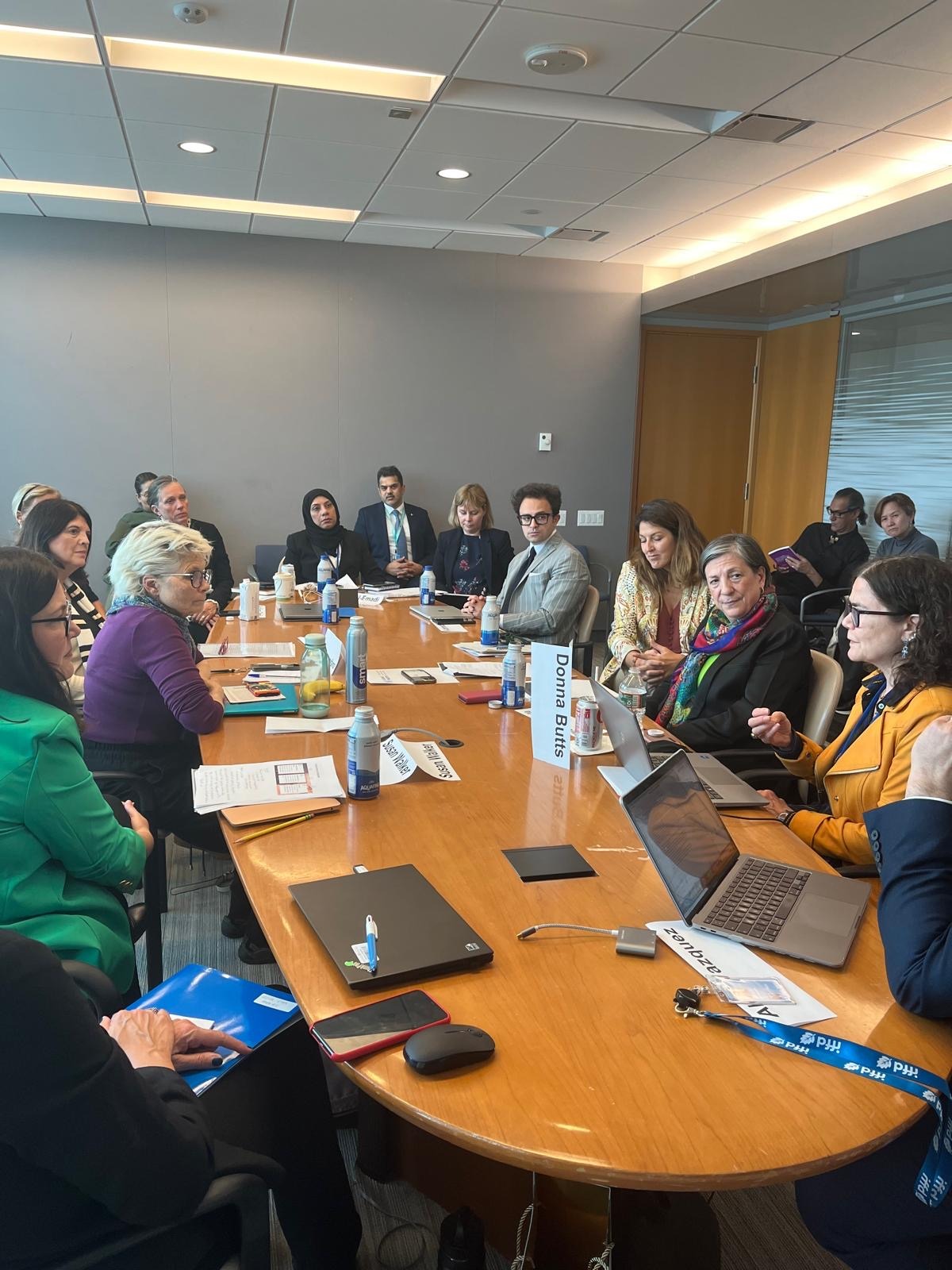
The Division for Inclusive Social Development (DISD) of the Department of Economic and Social Affairs (UNDESA) is organizing an expert group meeting on “Families and Climate Change” to be held in New York on 15-16 May 2024.
In line with General Assembly resolutions recommending research and analysis of megatrends, this meeting will explore: (1) climate change and its impact on families; (2) the role of families in climate action; (3) Indigenous perspectives on climate change and sustainable family farming; and (4) the interlinkages between climate change and demographic trends, forced migration and displacement, sustainable urbanization and new technologies.
Families’ vulnerability to climate change is manifested in the increasing frequency of extreme weather events, including hurricanes, droughts, floods and wildfires, often leading to displacement, property damage and loss of livelihoods. Food and water scarcity affects agricultural productivity and water availability, and thus families’ ability to access food and clean water. Changing climate patterns also influence the spread of diseases and exacerbate respiratory conditions, placing additional burdens on families’ healthcare needs. Moreover, families often rely on industries that are sensitive to climate impacts, such as agriculture, fisheries and tourism. Changes in these sectors can have economic implications for families’ income and stability.
Despite such impacts, there is a limited focus on how we can approach climate change from a family perspective. There is also insufficient research on how family- oriented policies can contribute to climate action and what families themselves can do to help with the achievement of specific targets under relevant Sustainable Development Goals, in particular SDG13 focusing on climate action as well as other goals intersecting with SDG13, such as poverty and hunger reduction, health and well-being, education, climate-induced migration and sustainable urbanization.
Most approaches and investments in climate change focus on advanced technologies, such as electrical or carbon neutral cars and devices, but there is little focus on the role of families and community power and of the centrality of the home amidst societal shifts in the economy, mobility, infrastructure and livelihoods.
Although families are key in addressing climate change through their actions and consumer choices, a family perspective is mostly overlooked in broader initiatives. Sustainable lifestyles can be nurtured in families, and thus it is important to empower families to play an effective role in the global response to combat climate change.
Notably, families play a crucial role in promoting environmental sustainability through education and instilling good habits and values that contribute to a greener lifestyle. By teaching children about energy conservation and responsible consumption, families can encourage mindful, energy-efficient practices. Emphasizing the importance of reusing and recycling materials within the household fosters a culture of waste reduction and resource conservation.
Furthermore, families can exemplify the practice of “voting with your wallet” by making environmentally conscious purchasing decisions and supporting eco-friendly products and businesses that prioritize sustainability. 1 Through education and modelling environmentally friendly behaviours, families not only reduce their ecological footprint but also empower future generations to become informed and proactive stewards of the planet.
Moreover, families play a pivotal role in advocating for climate solutions. By participating in local environmental groups or community-based initiatives, families can amplify their voices and mobilize collective action toward sustainable practices and policies. Additionally, parents can actively engage with schools to ensure comprehensive environmental education, advocating for curriculum integration and extracurricular activities that foster eco-consciousness among students. Encouraging discussions on climate change and sustainability within households can empower children to become agents of change in their communities. Through these efforts, families not only contribute to raising awareness but also inspire broader societal shifts towards a more resilient and environmentally conscious future.
Recognizing and incorporating Indigenous perspectives and knowledge into climate change discourse and policymaking is essential for fostering resilience, promoting biodiversity and conservation, advancing climate justice and reversing the damage of fossil-fuel based modes of production and consumption. Valuing, respecting and learning from the cultures of Indigenous Peoples deserves to be an integral part of climate action and strategy.
Family farming is estimated to account for approximately 80 per cent of farms worldwide, highlighting the overwhelming prevalence of family farming in global agriculture. Family farms vary widely in size, scale and production methods, but they collectively play a crucial role in feeding populations, supporting rural livelihoods and sustaining agricultural ecosystems. As the role of family farming in food sustainability is not sufficiently recognized or supported, the UN established a Decade for Family Farming (2019-2028) to draw attention of the role of family farming in overall sustainability efforts. It aims, inter alia, to highlight the importance of family farmers in food security, livelihoods, natural resource management and environmental protection and to identify priority policies to support family farmers and agricultural development worldwide.
Sustainable family farming is a crucial component of global food systems, contributing to food security, rural livelihoods, and environmental sustainability. 2 By prioritizing agroecological principles, sustainable family farms can mitigate the impacts of climate variability while promoting biodiversity and ecosystem health. 3 Furthermore, the integration of traditional knowledge and Indigenous practices into sustainable farming approaches enhances adaptive capacity and fosters resilience within farming communities. However, challenges such as access to resources, market dynamics and policy support remain barriers to scaling up sustainable farming practices and ensuring their long-term viability. Addressing these challenges will require multi-stakeholder collaboration, supportive policies and agricultural research to empower family farmers and enhance sustainable development.4
Climate change is closely linked to other megatrends analysed as part of the preparations for IYF+30. High fertility rates in certain regions can be seen as posing challenges to sustainability, but the countries contributing most to unsustainable patterns of production and consumption are mostly those with high per capita incomes and low fertility, not those growing rapidly with low per capita incomes.5 High fertility rates in regions of the global South correlate with lower levels of educational attainment and economic development 6; hindering efforts to implement sustainable practices and technologies. However, it is essential to approach this issue holistically, considering cultural, socioeconomic and policy factors. By empowering individuals with access to education, health care, and family planning information and services, countries can achieve population stabilization.
On the other hand, emerging research demonstrates that there exists a climate-change induced anxiety in family formation among young people. This trend has been occurring in Europe and to the lesser degree in the rest of the Global North. A recent extensive study published by The Lancet found that 40 per cent of Generation Z individuals (born between 1996 and 2009) worldwide are hesitant to have children due to concerns about the climate crisis. Similar sentiments have been echoed in surveys of millennials (born between 1981 and 1995). 7
Forced migration and dislocation are common outcomes of adverse climate events, such as droughts, floods and land degradation. These events often lead to the displacement of vulnerable populations, exacerbating existing social and economic challenges. Climate- induced migration disrupts livelihoods, strains resources and triggers conflicts over limited resources.8 It has also been linked to increased health risks, such as vector-borne illnesses spreading through contaminated water supplies. In this context, disaster risk reduction and sustainable urbanization strategies are key to mitigate the drivers of forced migration.
Sustainable urbanization is a challenge as cities face the severity of extreme climate events.9 Adaptation and mitigation strategies in tandem with sustainable management are essential to achieve sustainable urbanization. Adopting nature-based solution mimicking natural ecosystems to increase climate resilience and incorporating green building standards and green spaces into designs of smart cities can improve air quality, biodiversity and the overall well-being of city dwellers.10
New technologies hold immense potential in both preventing and mitigating climate change across various sectors. In energy production, advancements in renewable energy sources are leading to reductions in greenhouse gas emissions. 11 Smart grids and energy storage systems lead to efficient energy usage and reduction of waste.12 Additionally, advancements in carbon capture and utilization technologies enable the removal of CO2 from the atmosphere, helping to mitigate the effects of past emissions.13 Agency at the industry and corporation levels is key, but government oversight and policies are also necessary. Moreover, digital technologies enabling working from home contribute to the reduction in transportation to and from workplaces, thus reducing air pollution and traffic congestion.
Despite many linkages between climate change and other megatrends, policy responses have been fragmented and do not address current linkages in a systematic way. The EGM will address the potential of family-centred approaches to tackle the above- mentioned linkages in an effective and sustainable way and highlight good practices in some areas.
The primary objective of the meeting is to bring together experts to discuss and explore the issues noted above. The conclusions and recommendations of the meeting will provide Member States and other stakeholders with expert analysis regarding several issues related to family policy developments in the context of megatrends.
The findings and recommendations from the expert group meeting will be reflected in the upcoming report of the Secretary-General to the 79th session of the General Assembly on the preparations for and observance of the thirtieth anniversary of the International Year of the Family.
Experts are asked to provide a paper, make a short presentation, participate in group discussions and give their expert opinions and policy recommendations on family policy development, monitoring and implementation in the areas mentioned above. The experts are also expected to provide specific examples of good practices on topics under discussion and to offer detailed recommendations on the further development of policies, programmes and strategies to support families in the areas noted above.
Papers by experts will cover issues identified in the agenda, explain their relevance, provide quantitative and qualitative evidence, analyse the roles of social institutions, give examples of good practices, and offer conclusions and recommendations. The report and experts’ papers will be posted on the website of the DISD/DESA.
The in-person meeting, with possible online participation of some experts and observers, will be held at United Nations Headquarters in New York on 15-16 May 2024 from 9:00 am to 17:00 pm (EDT, i.e., “summer time” in NYC).
Experts will include academics from fields covering various aspects of climate change, family policy, new technologies, migration, urbanization, demographic trends and other related issues. Experts from various regions will participate in the meeting in their personal capacities. Each expert is required to provide a short presentation based on his/her written paper (not exceeding 15 minutes). The presenters should submit their papers to the UN Secretariat by 1 May 2024.
The participants will meet in several working sessions.
In carrying out their commitments under Article 4, paragraph 1 (i), the Parties shall: (a) Promote and facilitate at the national and, as appropriate, subregional and region
Parties shall cooperate in taking measures, as appropriate, to enhance climate change education, training, public awareness, public participation and public access to information, recognizing the importance of these steps with respect to enhancing actions under this Agreement.
Climate Change
Mercedes
Kinga
Madelaine
Zitha
Ignacio
Bahira
Zitha
Gamal
Susan
Ruben
Ahmed
Madeleine

09:00

New York

10:00

New York
Session 1
Moderator & introductory remarks: Masumi Ono, Chief, Social Integration & Participation Branch, Division for Inclusive Social Development, Department of Economic and Social Affairs, DISD/UNDESA
Launch of publications:
M. Gamal Abdelmonem, Chair in Architecture & Founding Director of Research, University of York, United Kingdom “Home, family and climate change: Understanding the power of home to transform societies in the face of climate emergency”
Renata Kaczmarska, Focal Point on the Family, DISD/UNDESA & Chista Behbin-Guirand, Intern, UNDESA “Main findings and recommendations of the background paper on ‘Climate change and families” (authored by Professor Lena Dominelli, University of Stirling, United Kingdom)
Regional expert group meetings, symposiums, awareness-raising events & national and local good practices & initiatives
Presenters:Irwan Nadzif bin Mahpul, Researcher at the Population and Family Research Division, National Population & Family Development Board, NPFDB, Malaysia The Development of Family Wellbeing Index : Malaysia Experience EGM on Interlinkages between Migration, Urbanization, New Technologies, Demographic Trends and Climate Change in Asia
Sharifa Al-Emadi, Director of International Relations, International Federation for Family Development, IFFD EGM on Population Ageing and Family Wellbeing in Europe Event at the European Parliament on the Impact of Climate Anxiety on Family Formation (Understanding the Controversy on the Decline in Fertility and the Future Evolution of it)
Ignacio Socias, Executive Director, Doha International Family Institute, DIFI EGM on Technological Change and the Family in the Arab Region EGM on Demographic Change & Family Wellbeing in Africa International Conference on Family and Contemporary Megatrends
Vivian Lou Weigun, Professor, University of Hong Kong and Representative of the Consortium of Family Institutes in Asia, CIFA EGM on Demographic Changes & Ageing of Population in Asia
Juan Antonio López Baljarg, Director general, Instituto de Analysis de Politica Familiar, IAPF EGM on Megatrends and Families: Focus on Demographic Change in Latin America
Donna Butts, Executive Director, Generations United Symposium “Changing Demographics can Result in Strengthening Families”
Dominic Richardson, President, Regional Council of Veneto Region Family Policies and the Impact of Climate Change
Roberto Ciambetti, Managing Director, Learning for Wellbeing Institute, Netherlands EGM on Parenting, Caregiving, Work-family Balance and Family Policies
Diosdado Marasigan, President, Educhild Foundation, Inc. Parenting education initiatives & IFFD Congress, Philippines
Alex Vazquez, Representative to the UN/Strategic Partnerships Coordinator, IFFD
Madeleine Wallin, Secretary General, European Federation of Parents and Carers at Home, FEFAF Unpaid care and domestic work and early childhood development
Regina Maroncelli Florio, President, European Large Families Confederation, ELFAC New technologies & the wellbeing of families at home, at work and in the community

11:45
Lunch

13:00

New York
Session 2
Moderator: David Harris, President of Children’s Research and Education Institute
Presenters:
Zitha Mokomane, Professor & Head of the Department of Sociology, University of Pretoria, “Population growth and environmental sustainability’
gnacio Socias, IFFD “The impact of climate anxiety on family formation”
Issues for discussion

15:00
Coffee Break

15:15

New York
Session 3
Moderator: Susan Walker, Associate Professor Emeritus, Family Social Science, University of Minnesota
Presenters:
Ruben P. Viramontez Anguiano, Professor, University of Colorado “Climate change, Indigenous perspectives and sustainable family farming”
Martin Bujard, Deputy Director of the Federal Institute for Population Research, Germany “Why families are essential for future climate protection policy”
Kinga Joo, European Policy and International Affairs Advisor, National Association of Large Families, Hungary, NOE ”EU climate action: Engaging families for sustainable change”
Issues for discussion

09:30

New York
Session 4
Moderator: Donna Butts, Generations United
Presenters:
Ahmed Aref, Planning and Content Manager, Doha International Family Institute, DIFI “Family stability & environmental sustainability: an interdependent nexus”
Regina Maroncelli Florio “Families, circular economy, education and environmentally friendly habit formation”
Issues for discussion

10:45
Coffee Break

11:00

New York
Session 5
Moderator: Kinga Joo, NOE
Presenters:
Bahira Trask, Professor, Human Development & Family Science, University of Delaware “Interlinkages between climate change, forced migration and displacement and sustainable urbanization
Gamal Abdelmonem, Chair in Architecture, University of York “Sustainable city design and families” (virtual)
..Antonio Franzina, Regional Council of Veneto Region “Sustainable urbanization: Good practices from Veneto region”
Issues for discussion

12:30
Lunch Break

13:30

New York
Session 6
Moderator: Sharifa Al-Emadi, DIFI
Presenters:
Susan Walker , University of Minnesota“Climate change, family technology use and the role of tech in promoting climate action”
Patricia Debeljuh, Director, Centro Conciliacion Familia y Empresa, IAE Business School & Angeles Destefano, IAE Business School “Redefining workspaces: Human ecology, families and environmental footprint”
Issues for discussion

15:00
Coffee Break

15:15

New York
Session 7
Moderator: Alex Vazquez, IFFD
Presenters:
Madeleine Wallin, FEFAF “Climate Change – How families can make a difference?”
Mercedes Jaureguibeitia, Executive Director, Home Renaissance Foundation & Angela de Miguel, Project and Media Manager, Home Renaissance Foundation “Care in the home, care of the common home”
Issues for discussion

16:30

New York
Clossing Session
Closing remarks: Renata Kaczmarska, DISD/UNDESA
Presenters:
* Final recommendations will be elaborated via email exchanges with participants
01
Climate Change, Indigenous Perspectives and Sustainable Family Farming
Ruben P. Viramontez Anguiano
02
The Interdependence of Family Stability and Environmental Sustainability
Dr. Ahmed Aref,
03
Families, circular economy, education and environmentally friendly habit formation
Maria Regina Maroncelli Florio
04
Climate Change And families
KINGA JOÓ
05
Population Growth and Environmental Sustainability
Zitha Mokomane
06
Redefining Workspaces: Human Ecology, Families and Environmental Footprints
P. Debeljuh and A. Destefano
07
The Impact of Climate Anxiety in Family Formation
Ignacio Socias Piarnau
08
Sustainable City Design and Families
Professor Mohamed Gamal Abdelmonem
09
Why families are essential for future climate protection policy
Prof. Dr. Martin Bujard
10
EU climate action: Engaging families for sustainable change
Franzina
11
Climate Change – How can Families make a difference
Madeleine Wallin
12
Care in The Home, Care of The Common Home
Mercedes Jaureguibeitia
13
Climate change, family technology use and the role of technology in promoting climate action
Susan K. Walker

Mohamed Gamal Abdelmonem
Chair of Architecture and the Founding Director of Research, York School
of Architecture, the University of York
Professor Abdelmonem was a Chair in Architecture at Nottingham Trent University. He held various academic roles at Queen’s University Belfast, the University of Sheffield,
and served as Visiting Professor at The University of California at Berkeley, Royal College of Art, and Beijing Institute of technology & CEPT University in India. Fellow of the Royal Society of Arts and Patron of the Home Renaissance
Foundation, Gamal is a multiple award winner and the recipient of The Queen’s Anniversary Prize (2021), UK’s highest national award for research, Research Excellence Award (2020), the Jeffrey Cook Award (2014), and the runner up
for the prestigious Newton Prize (2020). Professor Abdelmonem research focuses on architectural theory and history, architectural and urban heritage, architecture of home, spatial practices in urban spaces, virtual technologies,
and IT for Older people homes and climate change. Gamal’s research has informed governments, international organisations, and featured in leading academic journals and government policies. His recent books include ‘Peripheries:
Edge Conditions in Architecture’ (2012), ‘Portrush: Towards an Architecture for the North Irish Coast’ (2013); ‘The Architecture of Home in Cairo’ (2016), and “Architecture, Space and Memory of Resurrection in Northern Ireland”
(2019); and ‘People, Care and Work in the Home’ (2020).

Sharifa Noaman Al Emadi
Executive Director of Doha International Family Institute, DIFI
Dr. Al Emadi is a certified clinical psychologist by the Ministry of Public Health in Qatar. She currently
functions as a licensed psychologist to treat behavioral disorders, specifically drug addictions. She has been teaching family relations at Qatar University. She has delivered several courses and workshops in this field in Qatar
and abroad and has presented papers in several international conferences pertaining to several fields of study and research, some of which were published in international magazines. She held the position of Executive Director of
Protection and Social Rehabilitation and Executive Director of International and Community Relations at the Naufar Center. Besides her role as the Executive Director of Doha International Family Institute, she is also a member
of the National Committee for Women, Children, the Elderly and Persons with Disabilities; and a board member in the Social Sciences and Humanities Department at Qatar University. Dr. Al Emadi holds PhD and Master’s degrees in Psychology
and Counselling from Manchester Metropolitan University and was awarded the PhD Degree holders Platinum Medal at the Education Excellence Day in Qatar for the year 2009.

Ruben P. Viramontez Anguiano
Professor, University of Colorado
Dr. Viramontez Anguiano is a Professor and the Founding Chair of the Human Development and Family Relations Program in the School
of Education and Human Development at the University of Colorado Denver. He completed his M.S. in Human Development and Family Studies (HDFS) from Iowa State University and his Ph.D. in HDFS from Michigan State University. Dr.
Viramontez Anguiano is the son of immigrant Mexican parents and has dedicated over 30 years of his life to serving immigrant families, families of color and other underserved families in 9 different states. Through his Esperanza
College Group he has helped hundreds of Latino/a students, and their families establish a successful pathway to higher education including earning scholarships. His research has focused on rural and urban Latino/a families, schools
and communities. He has been instrumental in developing the first bilingual (Spanish and English) HDFS in the United States and Canada. As the Founding Chair at the University of Colorado Denver the HDFS program is one of the first
that has concentrated on diversity, equity and inclusion. He has received numerous awards, honors and recognition for his teaching and his work in education and the community with diverse communities.

Ahmed Aref
Planning and Content Manager, Doha International Family Institute, DIFI
Experienced policy-research expert, working on evidence-based policy development including research, interdisciplinary
policy analysis, impact assessment, advocacy and international cooperation. Prior to joining Qatar Foundation, Ahmed worked for UNFPA Arab States Regional Office, EU Program on Family and Child Rights and the Egyptian Prime Minister’s
Office. His broader areas of expertise include politics of social policies, political economy, labour policies, family policies, social justice and protection, migration, social inclusion/exclusion, demography, populations dynamics
and sustainable development. He led strategic initiatives and managed impact- oriented projects in the mentioned fields. He contributed to numerous national, regional and international conferences and EGMs. Ahmed holds a PhD from
the Institute for Policy Research at the University of Bath, UK.

Juan Antonio López Baljarg
Director general, Instituto de Análisis de Política Familiar, IAPF
Mr. Baljarg holds a Master’s degree in Government and Public Policies from the Universidad Panamericana
with a specialization in Institutional Government from the “Universidad Complutense de Madrid”, and a Bachelor’s degree in Communication from the “Universidad Anáhuac”. As a Director General of IAPF he has promoted laws and public
policies for the Federal Government of Mexico, Senate of the Republic, Chamber of Deputies, 7 State Governments, 12 Local Congresses, and 40 Municipal Governments. He is the Counselor of “COPARMEX Nacional” and member of the Ethics
Committee of “TV Azteca.” In 2021 and 2022, he was recognized by the magazine Campaigns and Elections as one of “the 100 young people who are already shaping the future of Mexico.” Advisor and counselor on political and social
issues in organizations such as “Consejo de la Comunicación”, “Unión Nacional de Padres de Familia”, and “Educación con Rumbo”, he has conducted workshops and lectures on government and civil society in most states of the Mexican
Republic and various countries in Latin America.

Martin Bujard
Deputy Director, Federal Institute for Population Research, BIB
Martin Bujard is Deputy Director at the Federal Institute for Population Research and head of department “Family
and Fertility”. He is Professor of Medical Sociology and Family Sociology at Heidelberg University. He built up large-scale data infrastructures for family research, e.g., he is co-founder and consortium coordinator of the German
Family Demography Panel Study FReDA and Germany’s representative in the Consortium Board of the Generation and Gender Programme (GGP). His research examines issues in family sociology, demography, and public health. He is involved
in policy advice such as member of expert committee on “Strengthening Family Solidarity” for demographic strategy of the German Federal Government and since 2020 member of the Scientific Advisory Board of the Federal Ministry for
Family Affairs, Senior Citizens, Women and Youth (BMFSFJ). Since 2019 he is honorary president of the Protestant Association for Families (eaf) and advocates for the interests of families.

Donna Butts
Executive Director, Generations United
Donna Butts has served as the Executive Director of Generations United since 1997. Generations United is a global organization headquartered
in Washington, DC. Founded over 35 years ago, the mission is to improve the lives of children, youth and older adults through intergenerational collaboration, public policies and programs for the enduring benefit of all. Butts
is an internationally known speaker, author and advocate addressing intergenerational connections, grandparents raising grandchildren and policies effective across the lifespan. She has served on five United Nations expert panels
on intergenerational and family issues and is a graduate of Stanford University’s Executive Program for Nonprofit Leaders. Her awards include recognition three years in a row by The Nonprofit Times as one of the Top 50 nonprofit
executives in the US; one of the 2015 Top 50 Influencers in Aging by Next Avenue; and the 2017 Family Award from the International Federation for Family Development. Under her leadership, Generations United received the 2015 Eisner
Prize for Excellence in Intergenerational Advocacy. Butts is a member of the National Academy of Social Insurance. In 2023, in preparation for the International Year of the Family+30, Butts directed an international expert symposium
resulting in the publication of Changing Demographics can Result in Strengthening Families. The report outlined findings, best practices, and policy and other recommendations to support intergenerational solidarity.

Roberto Ciambetti
President, Regional Council of Veneto Region
Mr. Ciambetti is a surveyor and by working in the private sector he has developed high skills in the environmental field, major hazards
and civil protection. He was the author of regional laws on environmental issues, such as protection of water resources and fight against light pollution. He has been also the drafter of the law for the implementation in Veneto
of circular economy. For his environmental commitments he has had the satisfaction to see the International Astronomical Union (IAU) at Harvard University giving his name to the asteroid 24087. Since June 2015 he has been President
of the regional Council of Veneto and vice President ELISAN, European Local Inclusion and Social Action network, member of European Committee of the Regions and member of the European Commission’s Enve (Enviroment Climate change
and Energy) , Nat. (Natural Resources) Sedec (Social Policy education, employment, research and Culture), Cives (Commision for citizenship, governance, institutional and external affairs). He is an expert in Venetian traditions,
history and culture. Mr. Ciambetti is married and he has two daughters.

Patricia Debeljuh
Director, Centro Conciliación Familia y Empresa, IAE Business School
Director of the Research Center for Work and Family Balance, IAE Business School – Austral University, Buenos
Aires (Argentina). Professor with over twenty years of academic experience. Her areas of specialization include business ethics, corporate social responsibility, work and family balance and women leadership. Member of a faculty,
in charge of Executive MBA courses and training seminars for executives, mentor and director of doctoral theses and master’s degrees. Author of several publications and books. Lecturer and speaker at international events in all
Latin American countries. She has accompanied IFREI accreditation processes in companies in Argentina and Central America, and worked for the International Labor Organization, ILO. She has led research projects on financial inclusion
of women in partnership with the IFC – World Bank and training and empowerment of women in partnership with the Inter-American Development Bank. She has participated as an expert convened for the Gender Parity Initiative, promoted
by the Inter-American Development Bank (IDB) and the World Economic Forum (WEF) with the support of the Argentine government through the Chief of Cabinet of Ministers. (2017) Awards received: “Orden de Mérito Protectora de la Familia”,
awarded by Suma Veritas Foundation and the Rotary Club in 2009. In 2011 was elected one of the 100 top women leaders in Argentina by Apertura Magazine. In 2013, she received “Woman Leadership” for her academic career in promoting
the development of women in business, awarded by Confederación Argentina de la Mediana Empresa (CAME). In 2019, her work received the highest distinction of the Honorable Senate of the Nation, the “Domingo Faustino Sarmiento Honorable
Mention”, which is awarded to people or entities of cultural, professional and academic activities. in recognition of his entrepreneurial work aimed at improving the quality of life of people, institutions and their communities.
Member of the International Society of Business, Economics and Ethics (ISBEE), and Association of Human Resources of Argentina.
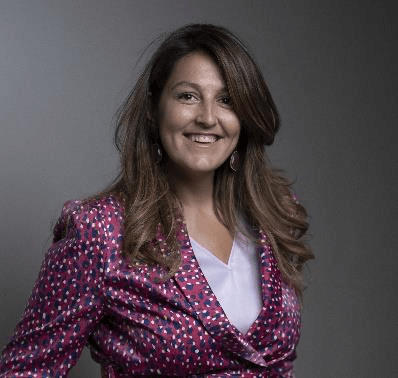
Ángela de Miguel
Project and Media Manager, Home Renaissance Foundation
Ángela de Miguel is an Expert in Communication (University of Navarra) and holds a Master’s Degree in Radio (San Pablo CEU
University). Since 2016 she has been responsible for Communications and Projects at Home Renaissance Foundation. She has also worked as Head of Public Affairs in Brussels for Carter Lane and has been linked to the academic world
since 2010 when she was professor of Radio Information at Villanueva University where, among other positions, she directed the Career Guidance department. She began her professional career at Radio Cope where she worked as a writer
and producer in different programmes of the radio station.

Angeles Destefano
PHD Candidate, Universidad Austral
Angeles Destefano is an expert in Diversity, Equity, and Inclusion (DEI) with a strong academic background. She holds postgraduate degrees
in Human Resources Management and Marriage and Family Relations. Currently, she is a doctoral candidate in communication at the Universidad Austral. Angeles has gained extensive experience in her field by working with industry
leaders and leading global transformative DEI projects. She currently resides in Toronto, Canada, where she leads DEI initiatives in the mining sector and serves on the Advisory Council of the International Women in Mining. Along
with her academic roles at Universidad Austral in Argentina and York University in Canada, Angeles conducts innovative projects on work-life balance, women’s leadership, human resources, and DEI. Angeles is passionate about women
in the workplace studies and believes in its crucial role in developing resilient families.
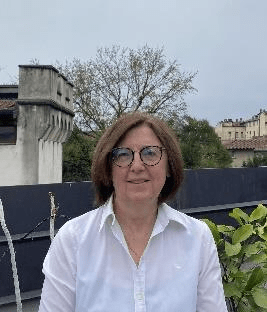
Maria Regina Maroncelli Florio
President, European Large Families Confederation, ELFAC
Angeles Destefano is an expert in Diversity, Equity, and Inclusion (DEI) with a strong Ms. Florio graduated
in foreign languages and literature, and works as a teacher and a journalist, specialising in sustainability and integral ecology. She has volunteered for the Italian Large Families Association (ANFN) as a communication director,
and has been a member of the board together with her husband Fabrizio for 8 years. They are now delegates for international issues. In June 2018 she became the president of ELFAC which gathers large families’ associations from
23 European countries, promoting and advocating for the rights, the values and the wellbeing of families, particularly those with 3 and more children. Since the establishment of the European Network of family friendly municipalities
she has served as its coordinator; today it counts 150 municipalities from 9 European Countries. She loves to travel and meet new people, cultures, and stories. She believes in the power of beauty and in the beauty of family. She
is married and has 4 children. She lives in Bergamo, Italy

Antonio Franzina
Head of the Press Office, Regional Council of Veneto Region
Mr. Franzina is a professional journalist, and one of the experts who designed and works for the implementation of
the Venice Declaration. He has been an art critic, between 1998 and 2004 and Head of the Second Urb-Al Network (European Union- Latin America Programme for the recovery and restoration of historic centres). For 25 years he has
been Vice-President of the “A. Palladio” International Centre for Architectural Studies (CISA Foundation) and of the Palladio Museum of Vicenza. He is a member of the General Council of the Cuoa Foundation (Cuoa Network University
International Business School). He is an author of publications and guides on history of art especially on Venetian Villas, Architecture and Landscape as well as the recovery and restoration of historical monuments.

David B. Harris
President of Children’s Research and Education Institute
David B. Harris is the President of Children’s Research and Education Institute, a partner at Kids Project, a senior research
fellow at the Center on Poverty and Social Policy at Columbia University, an advisory board member of the Social Policies for Health Equity Research Center at Harvard University, an affiliate of the Center on Poverty and Inequality
at Stanford University, and a senior research fellow at UNICEF Innocenti, Global Office for Research and Foresight. He received a Doctor of Philosophy in Social Welfare from Columbia University.

Ismahalil Ishak
Social Research Officer at the National Population and Family Development
Board, NPFDB
Ismahalil Ishak has been a Social Research Officer at the National Population and Family Development Board (NPFDB) in Malaysia since 2004. The Board’s objective is to strengthen families and
promote family well-being. He holds a Master’s degree in Sociology and specializes in family development. He has been actively involved in developing the national family policy and conducting family research. Currently, he leads
the strategic planning division, playing a key role in shaping policies that impact families in Malaysia. His expertise lies in contributing to the well-being and development of families through research and policy development.

Mercedes Jaureguibeitia
CEO Home Renaissance Foundation
Since studying Business and Commerce at the School of Commerce in Bilbao, Spain, Mercedes has worked extensively in the charitable sector,
primarily in managerial roles and financial administration. After specialising in the field of accountancy and finance, she became Financial Consultant, then Company Director and Finance Director to Dawliffe Hall Educational Foundation
(DHEF). She attained a postgraduate diploma in Advanced Management of non-profit organisations from City University. Mercedes was appointed Project Manager of the international interdisciplinary conference Excellence in the Home,
the impetus behind Home Renaissance Foundation, of which she is co-founder, going on to become Executive Director of HRF in 2007. The skills Mercedes has acquired in the voluntary sector particularly in fund-raising, management
and communications, have enabled her to raise the profile of HRF as a pioneering think tank and direct it towards achieving its objective to promote and develop greater recognition of the importance of the work required to create
a thriving home.
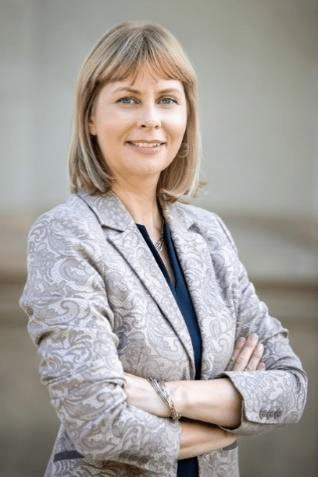
Kinga Joó
European Policy and International Affairs Advisor, National Association of Large
Families, Hungary, NOE
Coordinator of international relations at the National Association of Large Families (NOE), the widest network of families in Hungary. Since 2010 she has also been a member of the
European Economic and Social Committee, the representative body of organised civil society in the European Union. As a member of the Committee, she was rapporteur for the opinions on the European Care Strategy and on the European
Child Guarantee and was president of the study group on the Work-life balance directive. Ms. Joó has a background in humanities and international relations. She holds a Master’s degree from the Pázmány Péter Catholic University
in Hungary and the Centre International de Formation Européenne in France. She is married and has three children.
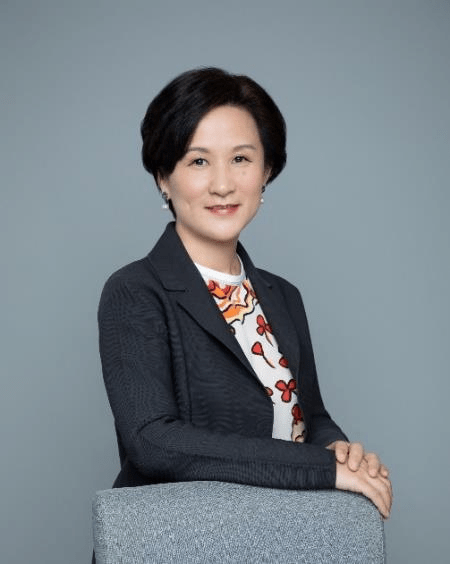
Vivian Lou
Professor at Department of Social Work & Social Administration at the
University of Hong Kong
Professor Lou Vivian W. Q. is the Director of Sau Po Centre on Ageing, and Professor at Department of Social Work & Social Administration at the University of Hong Kong. Her research
interests focus on family gerontology, in particular family caregiving for dementia, stroke, end-of-life older adults, and social adaptation and mental health of Chinese older adults and family caregivers. She has committed to
cross-sector collaboration with community partners, social enterprises, and the market. Prof. Lou has been appointed as a member of Statistics Advisory Board, Community Investment and Inclusion Fund, Senior Police Call Central
Advisory Board, and Elderly Academy Development Foundation of the HKSAR Government. She is a fellow of the Gerontological Society of America, and a Council member of Hong Kong Association of Gerontology and Consortium of Institutes
of Family Limited (CIFA). Professor Lou is recognized as Healthy Ageing 50 leaders transforming the world to be a better place in which to grow older in 2022 and Woman Change Maker in STEM in 2023.
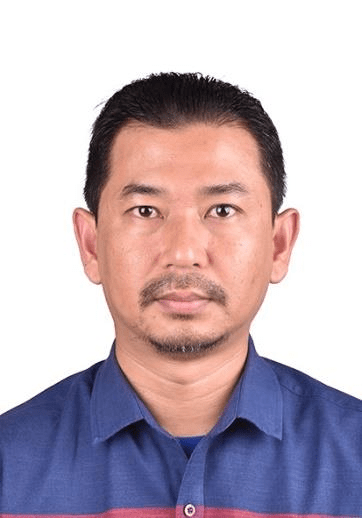
Irwan Nadzif Mahpul
Researcher at the Population and Family Research Division, National Population
& Family Development Board, NPFDB
Mr. Irwan Nadzif Mahpul serves as a researcher at the Population and Family Research Division, National Population and Family Development Board (NPFDB), Malaysia since
2004. Having served for 20 years, he is responsible for conducting national population and family research in the country. His latest research projects include the Malaysian Family Well-Being Index 2022 and the Sixth Malaysian
Population and Family Survey 2024. In addition, he is also doing evaluation research on programs and services offered by the NPFDB to the communities.
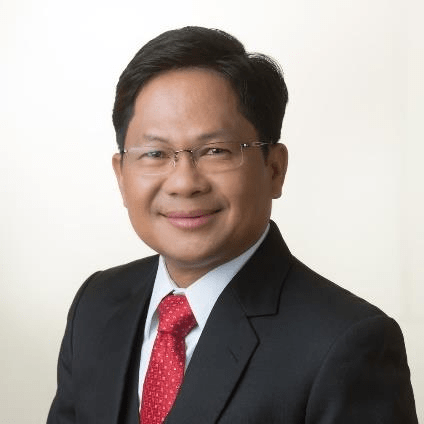
Diosdado B. Marasigan
President, Educhild Foundation, Inc.
Diosdado B. Marasigan is the president of EDUCHILD Foundation (part of the International Federation for Family Development, IFFD) in
the Philippines. EDUCHILD is a Philippine non-stock, non-profit organization formed by parents in 1976 to help fellow parents in the task of raising a family. He also serves as a Board Member of IFFD with its mission to support
families through training based on participative methodology to help parents improve their relationships with their spouses and develop their child- rearing skills. He was a head organizer of the 21st IFFD World Congress of Family
Enrichment and 2nd IFFD World Congress of Personal Project, held on 24-25 February 2024 in Cebu City, Philippines. He is a lawyer by training and vice dean of the UA&P Institute of Law and the UA&P Entrepreneurial Management Program,
School of Management. He is also a Certified Public Accountant.

Zitha Mokomane
Professor and Head of the Department of Sociology at the University of Pretoria,
South Africa
Zitha Mokomane is a Professor and Head of the Department of Sociology at the University of Pretoria, South Africa. She holds an MA and PhD in Demography from the Australian National University.
Her research focuses on family demography, work-family interface, social protection, social policy, and, to a lesser extent, adolescent and youth reproductive health. With a particular focus on the global South, her research aims
to generate a new understanding of how prevailing socioeconomic and demographic changes interact with various family dynamics to impact the welfare, well-being, and functioning of families and their members, particularly women,
children, and youth. She has disseminated her research findings widely in outputs that include journal articles, book chapters, books, conference papers and keynote addresses. Many of the recommendations of her research and collaboration
with international organizations have been incorporated into global, regional, and national policies aimed at enhancing family well-being, work-family reconciliation, and improving access to social protection.

Dominic Richardson
Managing Director of the Learning for Well-being Institute
The Institute is a global research ‘start-up’ working to promote a more holistic appreciation of child well-being
in public policy and practice. For almost a decade, Dominic led two of UNICEF’s global research teams, education and social policy and economic analysis at the Office of Research – Innocenti, where he oversaw work on cash transfers
and cash plus programmes (including gender responsive social protection), social expenditure and ECD policies, the Innocenti Report Card Series, and global research on family policies and child development and well-being. Dominic
previously worked with OECD Social Policy Division on a broad range of studies covering child well-being, evaluating family policies, integrating human services, and social impact investment. Dominic has led or co-authored multiple
reports on comparative child well-being in high- income countries, including studies evaluating the content and quality of international surveys of school children in high and middle- income countries, studies of children’s life
skills development in middle-income settings, and studies of teacher absenteeism and motivation in low-income settings. His most recent work on child well-being ‘What Makes Me?’ is a review of global literature on age-related child
development of innate human skills. Dominic was awarded the 2018 Jan Trost Award (lifetime achievement) for Outstanding Contributions in International Family Studies by the National Council for Family Relations in the United States.

Ignacio Socias
Director of International Relations for the International Federation for Family
Development, IFFD
Ignacio Socias holds a doctorate in Law and serves as the Director of International Relations for the International Federation for Family Development. Since 2010, his role has involved
extensive global engagement in coordination with United Nations’ activities. He has visited 64 cities in 45 countries, participated in 206 international meetings, delivered 198 keynote speeches, and conducted 87 high-level meetings
with government representatives. He has been instrumental in driving the global projects ‘The SDGs and families’ and ‘Inclusive Cities for Sustainable Families’. Furthermore, he represented IFFD in the European Commission project
‘FamiliesAndSocieties’ (2013- 2017) and has actively participated in high-level family-focused events at the European Parliament, the Committee of Regions, and the Economic and Social Committee. In recognition of his contributions,
Ignacio Socias has received several prestigious awards in Europe and America.

Bahira Trask
Professor, University of Delaware
Dr. Bahira Trask is a Professor of Human Development and Family Sciences at the University of Delaware. She holds a B.A. in Political Science with
a concentration in International Relations from Yale University and a Ph.D. in Cultural Anthropology from the University of Pennsylvania. Her research focuses on globalization, women’s employment, and family change in Western and
non-Western countries, and she presents regularly on these topics at international forums. Recently, Dr. Trask has worked on issues of urbanization and migration from a global perspective. Dr. Trask has authored and edited several
books including Women, Work, and Globalization: Challenges and Opportunities (Routledge, 2014), Globalization and Families: Accelerated Systemic Social Change, (Springer, 2010) and Cultural Diversity and Families (Sage, 2007),
as well as having published over 100 peer reviewed articles, chapters, and reports. Much of Dr. Trask’s scholarship has been informed through participation with a number of international, national and community-based research projects
that focus on diversity, gender and work, and strengthening low-income families. Her work has been funded by the Annie E. Casey Foundation, the Marguirite Casey Foundation, Blueprints Delaware and various local community initiatives.
Dr. Trask is a fellow of NCFR, the National Council on Family Relations, she has won the Jan Trost award for excellence in international scholarship and in 2017 she was awarded the University of Delaware Excellence in Teaching
Award. In 2022 she received the prestigious Groves Sussman Award for her work in International Family Studies and Policy.

Jose Alejandro Vazquez Alarcon
Representative to the UN/Strategic Partnerships Coordinator, IFFD
Jose Alejandro Vazquez Alarcon is the United Nations representative for the International Federation
for Family Development. He plays a crucial role in connecting Member States, academia, the UN system, families, and diverse civil society stakeholders. With a Ph.D. in Political Thought and Development, Alex offers valuable insights
and actively engages stakeholders in finding practical solutions. He is a strong advocate for work-family balance, shared responsibilities at home, and the implementation of parenting education programs. Alex has shared his expertise
in promoting these causes as an invited expert at numerous United Nations Conferences, Meetings, and Commissions on Family, Parenting, Ageing, Care, and Youth Transitions held at prestigious venues worldwide. Notably, Alex has
led the creation of a comprehensive evidence-based Global Report on Families, Family Policies, and the Sustainable Development Goals in collaboration with UNICEF. Currently, he oversees various projects, including “Inclusive Cities
and Sustainable Families,” which gathers family-friendly policy recommendations from urban areas. He is also coordinating preparations for the 30th Anniversary of the International Year of the Family in 2024, leading a Civil Society
Declaration signed by more than 40 organizations across five continents. Alex’s academic background includes a stint as a visiting scholar at the European Institute of Columbia University, New York, and he holds a Master of Arts
in Government and Culture of Organizations from the University of Navarra, Spain.

Madeleine Wallin
Secretary General, European Federation of Parents and Carers at Home, FEFAF
Madeleine Wallin is General Secretary of the European Federation of Parents and Caregivers at Home
(FEFAF) as well as the International Coordinator and Board Member for Haro: she previously served as President of both organizations. In her work at FEFAF and Haro, she advocates freedom of choice and equality for parents in Swedish
family politics and wants to raise awareness about children’s needs and the importance of motherhood. She is a mother of five children.
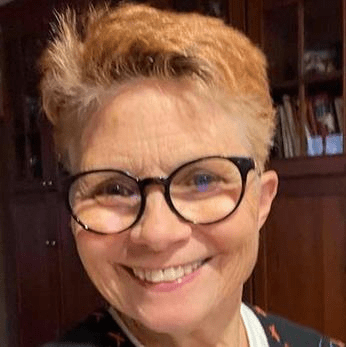
Susan K. Walker
Professor, University of Minnesota
Susan Walker is Associate Professor Emeritus of Family Social Science at the University of Minnesota. For 40 years Susan has worked in the service
of families, primarily in parenting education and early childhood research, practice and policy. She is a former state Extension Specialist in Family Life and Human Development at the University of Maryland and recently retired
from Minnesota where for 10 years she directed the licensed Parent and Family Education teacher preparation and Masters of Education graduate program. Her specialty bridges family life, education and technology. In 2021, Ms. Walker
prepared a background report and presented on Technology and the Family for the United Nations Year of the Family. While at the University of Minnesota, she created the course, Critical Perspectives on Technology and the Family,
and launched an open textbook in fall of 2022. Her research on technology integration in parenting education includes professional experiences adopting face to face programs to online delivery during COVID. Her international work
includes consulting with the University of Iceland and Education University of Hong Kong.

Masumi Ono
Chief, Social Inclusion and Participation Branch, UNDESA
Masumi leads a dedicated team of specialists on issues related to older persons, youth, persons with disabilities and family.
Her 25 years of UN experience include supporting the development of Sustainable Development Goals from the Secretary-General’s office, mobilizing high-level advocacy work on education finance, preparing reports for the Economic
and Social Council and the General Assembly on cross-sectoral themes such as gender, poverty eradication and UN system coherence, and managing trade facilitation programmes in the Asia Pacific region. Before joining the UN through
the National Competitive Exam (YPP), she worked in Finance having obtained MBA and BA (Economics) both from Cornell University (USA).

Chista Behbin-Guirand
Intern, UNDESA
Chista joined the UN as a social affairs intern in February 2024. Prior to interning at the UN, she attended the University of Toronto (U of T), receiving
her Bachelor’s in Environmental Studies with a double minor in Environmental Ethics and Environmental Anthropology. While studying at U of T, she conducted a number of research projects focusing on equitable and climate change
initiatives. She acted as project lead for her senior capstone, focusing on container gardens in the urban environment. Upon completing her studies at UofT, she returned to New York to complete her second Bachelor’s in International
Trade and Marketing with a double minor in Economics and History of Art at the Fashion Institute of Technology. Here, she gained a deeper understanding of global trade and corporate social responsibility. She produced several presentations
which included demographics research, environmental scanning, and market analysis. She is passionate about sustainable development initiatives and eager to learn at the UN while contributing her academic knowledge and fluency in
two languages.

Renata Kaczmarska
Social Affairs Officer, UNDESA
Renata is the Focal Point on Family in the Division for Inclusive Social Development in the Department of Economic and Social Affairs at the United
Nations Secretariat in New York. In this capacity, she acts as a spokesperson on family issues for the United Nations Secretariat. She prepares publications and drafts UN reports on a variety of subjects relating to families and
organizes international and regional expert group meetings on family policy issues, observances of the International Day of Families and other events to raise awareness of the importance of family policies for the achievement of
Sustainable Development Goals and targets. She is currently engaged in the preparations for the 30th anniversary of the International Year of the Family, 2024. She holds a Master of Science Degree in Social Sciences and Bachelor
of Arts in Political Science as well as United Nations Studies Graduate Diploma.

The interlinkages between migration, urbanization, climate change and technological and demographic trends were raised at an event organized by Doha International Family Institute (DIFI) a member of Qatar Foundation during the Expert Group Meeting (EGM) held in Kuala Lumpur, Malaysia.
The meeting highlighted the New Urban Agenda and explored ways to achieve inclusive, safe, resilient, and sustainable cities, and envisaged several outcomes including underlining the impact of migration on transforming family structures and analyzing strategies for optimizing the benefits of technology while minimizing its drawbacks on family relationships. They also discussed the policy lessons learned from Asia that can be applied globally, and the potential contributions of global experiences to the Asian context, interlinkages between migration, urbanization, new technologies, and climate change, said the statement issued by Qatar Foundation.
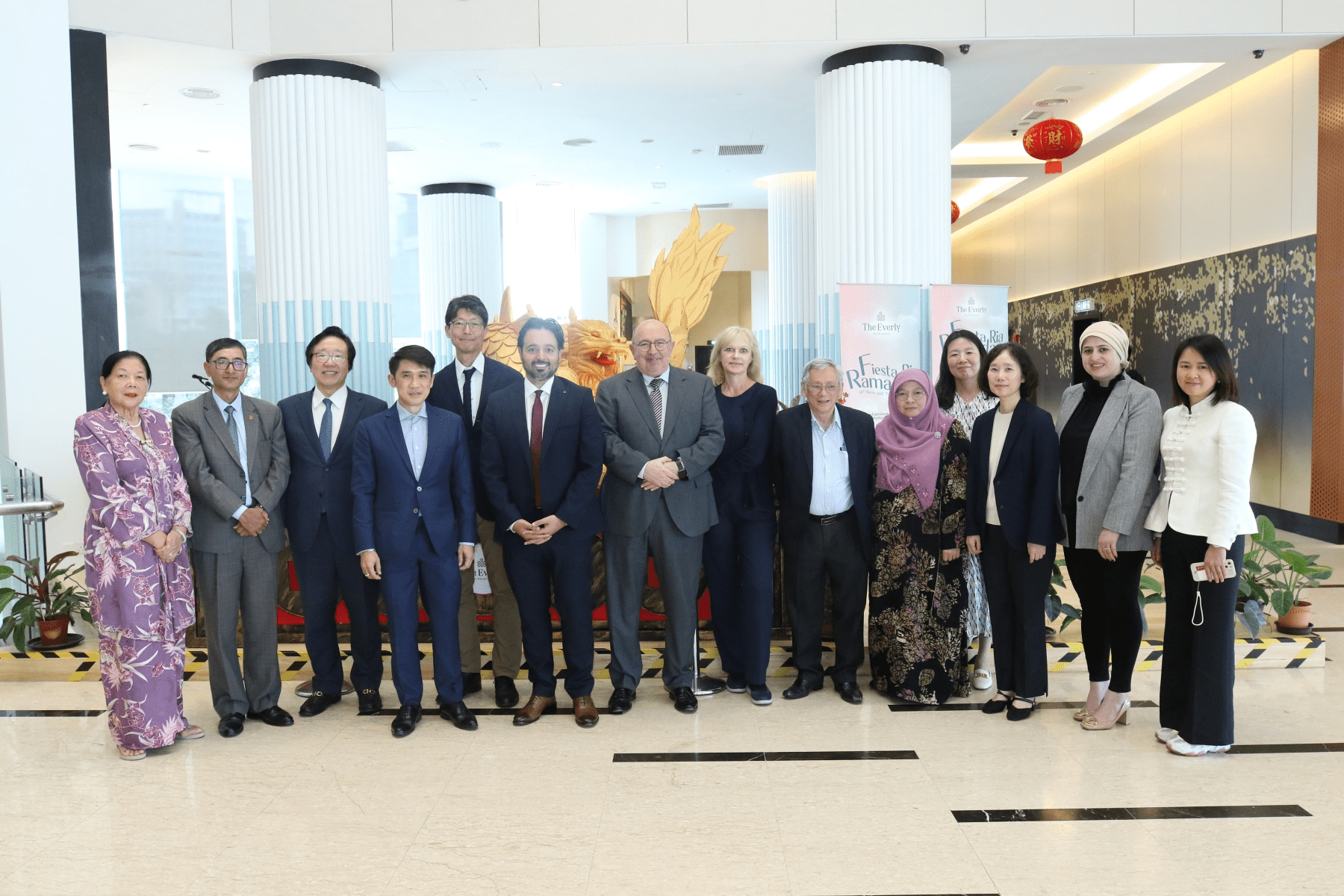
The event was held in partnership with the National Population and Family Development (LPPKN), the United Nations Department of Economic and Social Affairs (UNDESA), and the International Federation for Family Development (IFFD), the statement continued. Director General of the National Population and Family Development Board Abdul Shukur Abdullah began the event by discussing families and megatrends, and the importance of understanding a rapidly and ever-changing world. “The four megatrends require proactive responses that create opportunities and challenges to shape our present and future,” Abdullah said. “The Expert Group Meeting provides excellent opportunities for us to take the necessary measures to tackle the remaining and emerging challenges towards achieving the New Urban Agenda. Malaysia is honored to be part of this program and we hope this fruitful collaboration will continue for many years as we unite in pursuit of common goals,” he added. Director of the Family Research and Policy Department at DIFI Dr. Khalid Al-Naama said, “The profound interaction between the megatrends, and the fixed family ties, constitutes a landscape of interconnected forces.” “As individuals migrate, cities develop, technology advances and demographics shift, families stand at the heart of these transformations,” he added. Speaking about families in Asia, Director of Communication and International Relations at IFFD Ignacio Socias said that they are facing a dynamic landscape shaped by the four megatrends globally that are being studied for the 30th anniversary of the International Year of the Family (IYF). “Demographic trends influence family structures and sizes, impacting social dynamics and resource allocation. The rapid integration of new technologies transforms daily life, altering communication patterns and access to information,” he said. “Migration patterns often lead to separated families, challenging traditional support systems and cultural norms. Urbanization brings opportunities and challenges, reshaping living environments and family lifestyles affecting the well-being of Asian families.” Focal Point of the Family at the Division for Inclusive Social Development (DISD) of UNDESA Renata Kaczmarska said, “As we are celebrating the 30th anniversary of the IYF in 2024, we have been focusing on the impact of megatrends on families at regional levels. The Expert Group Meeting held in Malaysia has contributed to the understanding of the impact of megatrends on families, especially in terms of fertility and family formation in the region.” “The importance of investing in parenting education assisted by new technologies has been highlighted as needing cooperation between Government agencies, civil society, academia, and the private sector in overall family policy development and implementation,” she concluded. (QNA)
Migration represents one of the most important social phenomena of the late twentieth and early twenty-first centuries. International migration and internal migration are two fundamental categories that encompass the movement of individuals across geographical boundaries. While both terms refer to the relocation of people, they differ in the scale and nature of the migration process. International migration involves the movement of individuals across national borders, resulting in a change in citizenship. This type of migration can be motivated by a variety of factors, including economic opportunities, political stability, family reunification, or the pursuit of educational or professional advancements. International migration can be further categorized as voluntary or involuntary. Voluntary migration occurs when individuals choose to relocate for personal reasons, while involuntary migration is often the result of conflict, persecution, or natural disasters.
Internal migration, on the other hand, refers to the movement of individuals within the boundaries of a single country. This type of migration can be driven by factors such as rural-urban migration, urban sprawl, or the pursuit of better employment opportunities or educational facilities. Internal migration can also be influenced by government policies, regional economic disparities, and individual aspirations for a better quality of life.
The distinction between international and internal migration is significant for understanding the demographic patterns, economic dynamics, and social implications of population movements. International migration has a profound impact on both sending and receiving countries, influencing labor markets, economic development, and cultural exchange. Internal migration, while primarily affecting the distribution of population within a country, can also lead to urban growth, regional disparities, and the transformation of rural and urban landscapes.
Closely linked with migration is the rapid urbanization that is occurring in many parts of the world and is changing family structures. As migrants leave rural areas seeking opportunities in cities, urban areas are growing at an exponential pace. (1)
Both trends have a profound impact on family life, family relationships, and family practices:
The impact can be especially significant for the most vulnerable as children, older persons and persons with disability, particularly if they are forced to move due to conflict or displacement, as they may experience trauma, disrupted education, lack of mobility and other challenges that can affect their well-being and development.
Young people can also be heavily affected in terms of employment, housing and family formation. In that sense, it is now more important than ever to bear in mind that integration is an investment. (4-2)
Asia has been experiencing rapid urbanization and migration in recent decades. This has led to significant changes in the social, economic, and cultural landscape of the region. Migration from Asia to Northern America and Europe drove much of the increase in the number of Asian migrants outside the region, reaching a total of more than 46 million extra- regional migrants in 2020. (5-3)
Many migrant workers leave their families behind and only return home for brief visits. This has led to the development of new family structures and relationships, with grandparents often taking on a more prominent role in the upbringing of children.
In reply to these challenges, one of the biggest challenges faced by Asian cities is the need to provide adequate infrastructure and services to accommodate the growing urban population. This includes building new housing, transportation systems, and social services such as healthcare and education.
Policies and programs that support migration and well-planned and well-managed sustainable urbanization are closely related to the successful realization of the United Nations Agenda 2030, as localized by the New Urban Agenda. SDG 11 emphasizes the need for inclusive, safe, resilient, and sustainable cities and communities. Ensuring that families have access to adequate housing, basic services, and infrastructure, and that they are not left behind in the process of urbanization, is crucial for achieving it, and that is the policy framework of the New Urban Agenda.
Overall, the challenges posed by urbanization and migration in Asia are complex and require a coordinated effort by governments, civil society organizations, and individuals to address them effectively.

8:30 AM

Meejung Chin (South Korea),
Rumaya Juhari (Malaysia)
Opening Session
Speakers:
Renata Kaczmarska – Focal Point of the Family, UN DESA
Mr. Abdul Shukur Abdullah – Director General of LPPKN
Dr. Khalid Al Naama – Director of Family Policy and Research, DIFI
Dr. Ignacio Socias – Director of International Relations, IFFD Introduction of participants

9:00 AM

Meejung Chin (South Korea),
Rumaya Juhari (Malaysia)
Session 1
Moderator: Ignacio Socias

10:30 AM
Coffee Break

11:00 AM

Bhubate Samutachak (Thailand),
Rokuro Tabuchi (Japan)
Session 2
Moderator: Renata Kaczmarska

12:30 PM
Lunch

2:00 PM

Ki-Soo Eun (South Korea),
Ram Babu Bhagat (India)
Session 3
Moderator: Dana Alkahlout

3:30 PM

Sunil Babu Shrestha (Nepal),
Lishuang Chen (China)
Session 4
Moderator: Dana Alkahlout

5:00 PM
End

8:30 AM

Narimah Awin (Malaysia),
Jong-ik Lee (South Korea)
Session 5:
Moderator:
Renata Kaczmarska

10:00 AM
Coffee Break

10:30 AM

Recommendations
Session 6
Moderator: Dana Alkahlout

12:00 AM
End
01
Future Scenarios for Thai Families in 2040
Assoc.Prof.Bhubate Samutachak, Ph.D.
02
Cyber Jungle Guardian, Blue Elephant
Pro. Konkuk University
03
Transnational Migration , Gentrification, and Displacement
Seoul National University
04
Fertility Decline from a Perspective of Megatrends
Seoul National University
05
The impact of NEW TECHNOLOGY and CLIMATE CHANGE
Dato’ Dr Narimah Awin (Malaysia)
06
Housing and Urban Development
China Great Wall Society, Beijing, China
07
Emerging Trends in Domestic Migration Patterns in Japan
Rokuro TABUCHI (Sophia University, Japan)
08
Navigating the Nexus: Exploring Family Challenges amidst Migration
Rumaya Juhari, Ph. D
09
Urban Development and Housing in Nepal: Challenges and Opportunities
Dr. Sunil Babu Shrestha
10
Exploring the Implications of Fertility Decline in Malaysia
Tey Nai Peng, Universiti Malaya

Doha, Qatar, 28 October 2023: Major family formation trends in Latin America, as well as issues impacting recent family policy developments in the context of megatrends including fertility, mortality, and family dynamics, were highlighted at an event organized by Doha International Family Institute (DIFI) – a member of Qatar Foundation – during the Expert Group Meeting event held in Mexico City, Mexico.
Under the theme ‘Megatrends and Families: Focus on Demographic changes in Latin America’, the event was in preparation for the 30th anniversary of the International Year of the Family in 2024 (IYF+30) and was held in partnership with the Institute for Family Policy Analysis (IAPF), the United Nations Department of Economic and Social Affairs (UNDESA) and the International Federation for Family Development (IFFD).
Other topics addressed during the Expert Group Meeting (EGM) event included early childhood, parenting education, positive parenting, recognition of unpaid work and shared responsibility at home, youth transitions and labor inclusion, and the interlinkages between demographic trends, migration, and urbanization in contemporary Latin America.
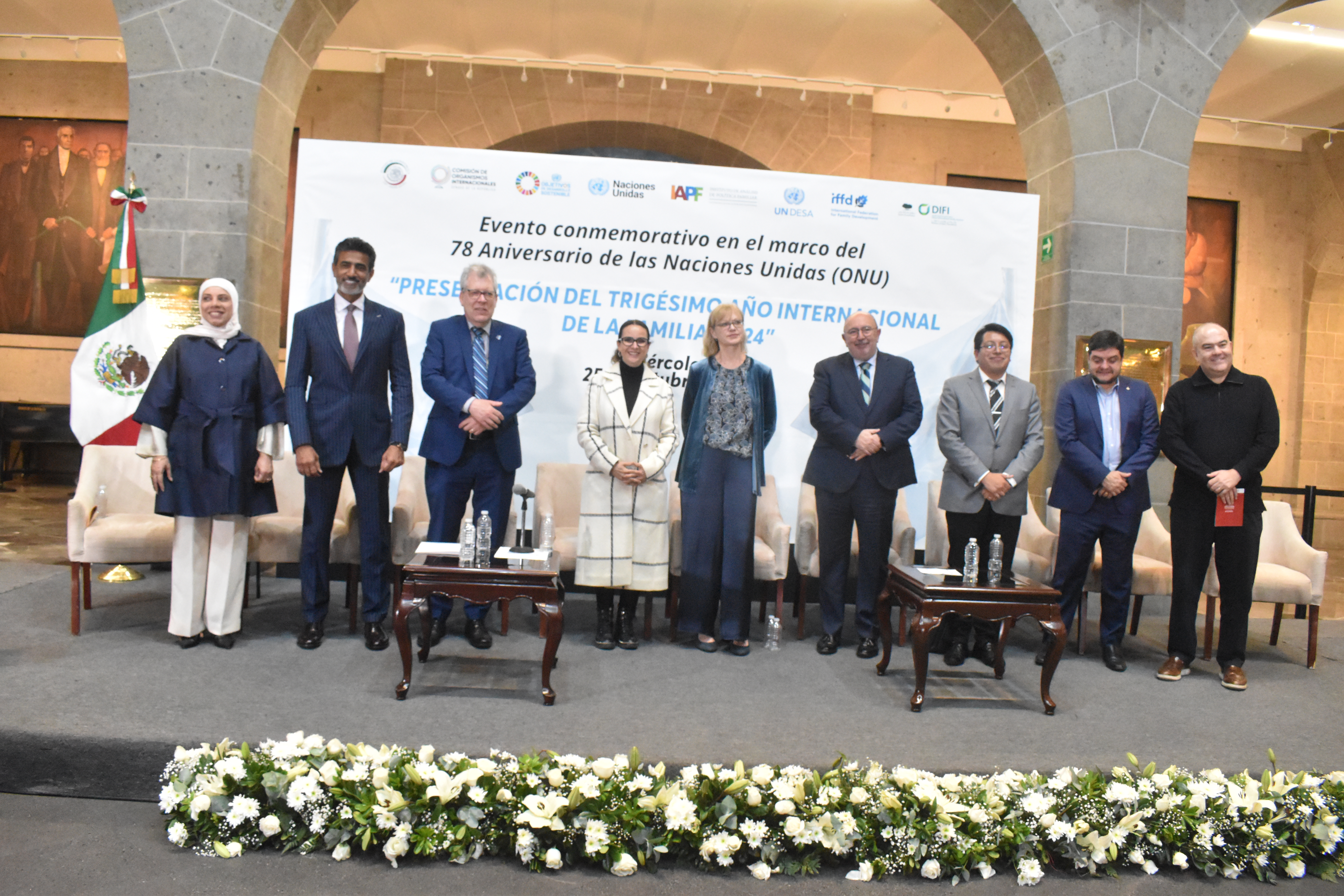
Dr. Sharifa Al-Emadi, Executive Director of DIFI, highlighted the importance of addressing the overarching trends and their implications on family policies globally, in preparation for the commemoration of the IYF+30 conference. “DIFI has played a crucial role in pushing for policy changes to support families not only in our region but worldwide, through actively engaging to generate evidence as well as nudging for policy change to support and empower families”.
Speaking on the preparations for IYF+30, Renata Kaczmarska, Focal Point of the Family at the Division for Inclusive Social Development (DISD) of UNDESA, said: “Responsive policies and programs that strengthen and support families help to reduce challenges brought about by demographic shifts. “Only a coordinated response will help to achieve stronger relationships and intergenerational solidarity within families and societies. The EGM is to analyze current demographic trends in the region and offer recommendations on the best ways to promote the wellbeing of families in Latin America in light of rapid demographic shifts.
Ignacio Socias, Director of Communication and International Relations at IFFD, said: “We are organizing this Latin American expert meeting because, in a region marked by diverse socio-economic disparities and a history of familial structures, robust family policies adapted to the present situation should play a pivotal role in promoting social cohesion and human development, not only as a means to empower individuals and families but also as a path towards achieving greater social equity and progress.”
Juan Antonio López Baljarg, Institute for Family Policy Analysis, stated: “The meeting of the Group of Experts “Megatrends and Families: Focus on demographic changes in Latin America” is a space to study the demographic changes that occur in this region in order to contribute to the objectives of the 30th Anniversary of the International Year of Family.”
Recommendations for future action including the importance of conducting more research on the demographic impact on family wellbeing to build a strong local infrastructure that supports urban families in Latin America, and developing, monitoring and implementation policy suggestions and interventions across areas such as fertility, mortality and family dynamics, early childhood, parenting education and positive parenting, youth transitions, labor inclusion and international migration.
The Instituto de Análisis de Política Famil- iar (IAPF), in partnership with the Focal Point on the Family, Division for Inclusive Social Development of the United Nations Department of Economic and Social Af- fairs (DESA), the International Federation for Family Development (IFFD) and Doha International Family Institute (DIFI) are or- ganizing an Expert Group Meeting on “Megatrends and Families: Focus on De- mographic changes in Latin America” to be held in México. The meeting will build on the modalities for the preparations for the 30th anniver- sary of the International Year of the Family (IYF+30), which focus on several mega- trends. The recommendations for the pre- paratory works have been reflected in the Reports of the United Nations Secretary General 2020 and 2021. In 2021, the Gen- eral Assembly’s resolution on the prepara- tions endorsed those recommendations and advised focusing on the trends of new technologies, migration, urbanization as well as demographic trends and climate change. According to the previously mentioned resolution and relevant United Nations mandates, the Expert Group Meeting aims to address specifically on demographic changes in Latin America.

09:00

Mexico
Introduction of participants
Speakers:
Sen. Nancy de la Sierra
Renata Kaczmarska (UN DESA)
Sharifa Noaman Al Emadi (Doha International Family Institute)

9:30

Mexico
Session 1
Fernando Pliego Professor, Universidad Nacional Autónoma de México (UNAM), Institute of Social Re-search
Francisco Javier Solís Gamboa Coordinador de políticas públicas, Instituto de Análisis de Política Familiar (Mexico)
Moderator: Alex Vázquez, International Federation for Family Development (IFFD)

11:00
Coffee Break

11:30

Mexico
Session 2
Ahmed M. Aref, Planning and Content Manager, Doha International Family Institute
Alejandra Mendoza Directora de Formación y Responsabilidad Empresarial, Instituto de Análisis de Polí-tica Familiar (Mexico)
Moderator: Ignacio Socias, International Federation for Family Development (IFFD)

13:00
Lunch

14:00

Mexico
Session 3
Simone Cecchini Chief of the Latin American and Caribbean Demographic Centre, Population Division of ECLAC
Gabriela Márquez National Coordinator, International Labour Organization (ILO) office for Cuba & Mexico
Moderator: Renata Kaczmarska (UN DESA)

15:30

Mexico
Wrap-up of the first day.

16:00
End

09:00

Mexico
Session 4:
Pablo Gluzmann Senior researcher, Center for Distributive, Labor and Social Studies (CEDLAS) of Uni- versidad Nacional de La Plata (Argentina)
Enrique Peláez Researcher – Professor, Facultad de Ciencias Económicas, Consejo Nacional de In- vestigaciones Científicas y Técnicas de (CONICET, Argentina)
Moderator: Juan Antonio López Baljarg , Instituto de Análisis de Política Familiar (IAPF)

10:30

Mexico
Session 5:
Elizabeth Thomas-Hope Professor, Department of Geography and Geology, University of the West Indies at Mona (Jamaica)
Cimar Aparicio Senior researcher, Center for Population, Geographical and Demographic Studies of Universidade Federal do Espírito Santo at Vitória (Brazil)
Moderator: Ignacio Socias , International Federation for Family Development (IFFD)

11:00

Mexico
Session 6
Moderator: Alex Vázquez International Federation for Family Development (IFFD)
Wrap-Up: Renata Kaczmarska (UN DESA)

12:00
End
01
Forjando un Futuro Sostenible
Megatrends & Families
02
Movilidad Residencialy Dinámica Familiar en las Áreas Metropolitanas de América Latina
Cimar Aparicio, UFES (Brazil)
03
Policy Development: How Institutions Can Support Policy that Advances Parenting
Dana El Kahlout, Advocacy and Outreach Lead, DIFI
04
Envejecimiento y Curso de Vida: Necesidad de una Mirada Integral en las Políticas Públicas
Dr. Enrique Peláez, CIECS CONICET, FCE-UNC
05
PROCESOS DE CAMBIO EN LAS ESTRUCTURAS DE FAMILIA Y BIENESTAR DE LA POBLACIÓN
DR. FERNANDO PLIEGO CARRASCO,INSTITUTO DE INVESTIGACIONES SOCIALES, UNIVERSIDAD NACIONAL AUTÓNOMA DE MÉXICO.
06
Fertilidad y mortalidad: una mirada desde las dinámicas familiares y provisión de servicios de apoyo
Senado de la República, México
07
Rumbo a la conciliación de la vida laboral y familiar
Gabriela Márquez Conde – Oficial Nacional de Proyecto
08
Claves para entender el Fenómeno de los NiNis en América Latina
Pablo Gluzmann, CEDLAS-FCE-UNLP & CONICET
09
Cuidados y envejecimiento en América Latina y el Caribe
Simone Cecchini, Director, CELADE – Population Division of the ECLAC
10
Exploring the Implications of Fertility Decline in Malaysia
Tey Nai Peng, Universiti Malaya
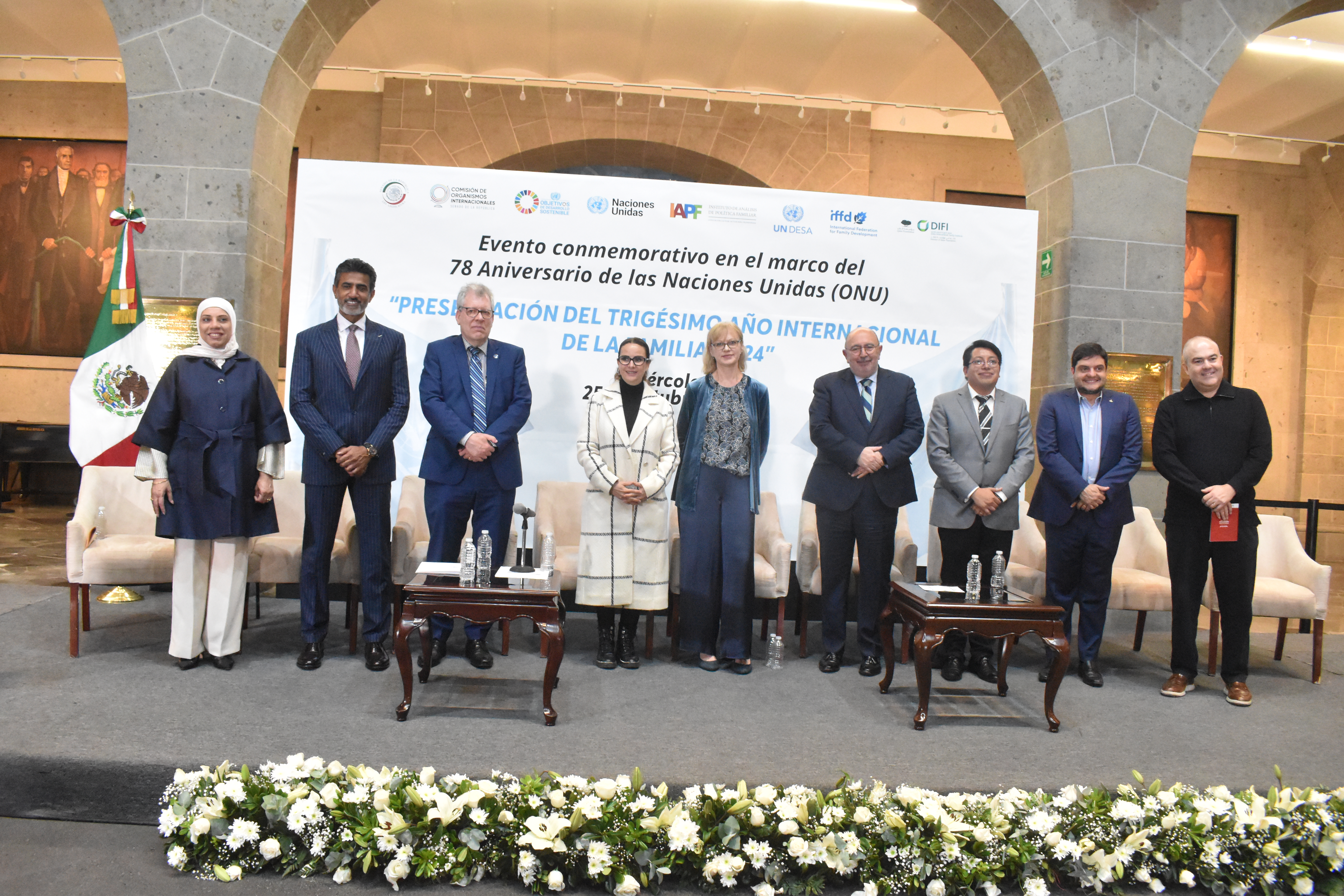

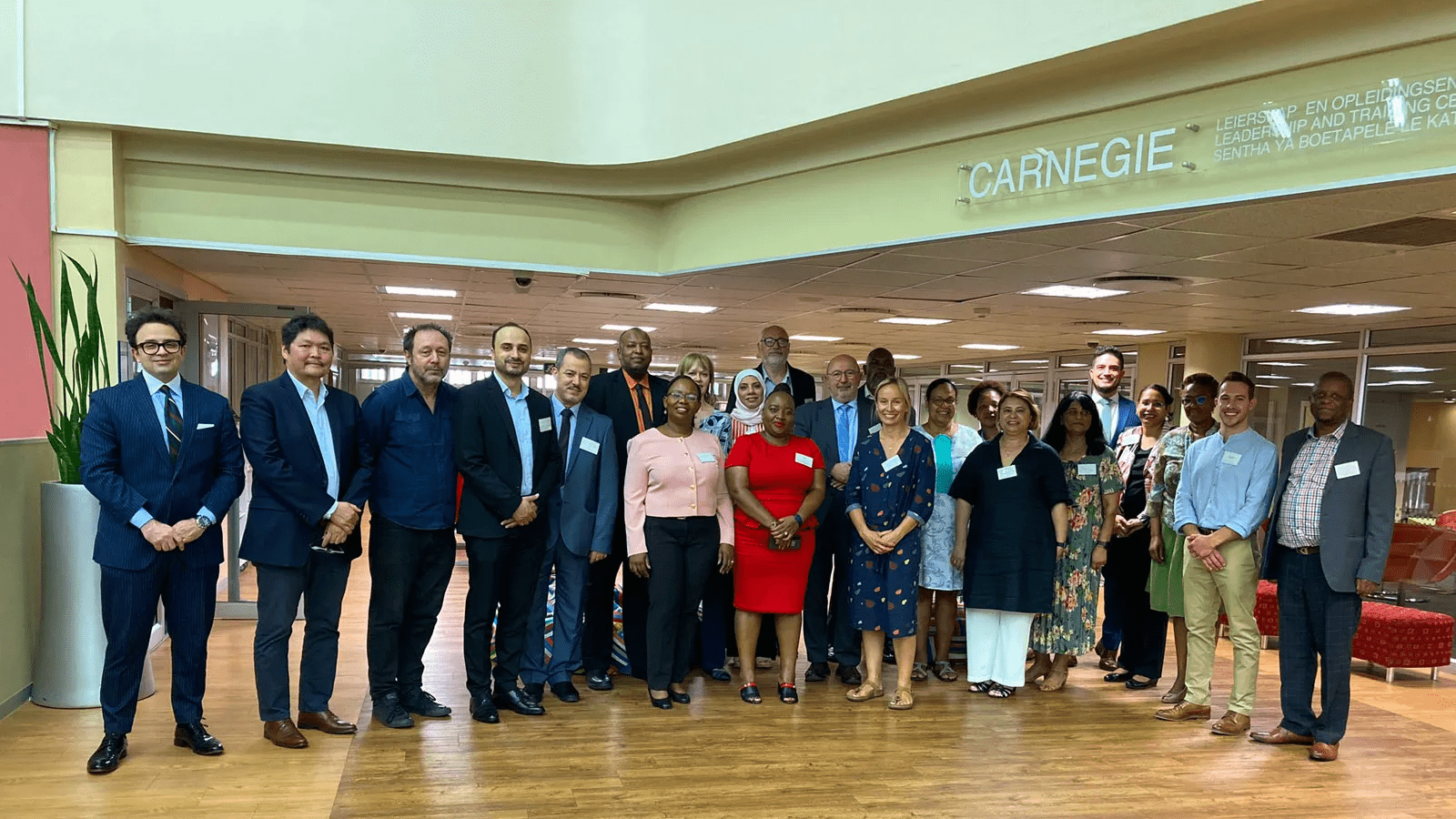
The impact of socio-economic and demographic transformation in Africa and its effect on family well-being were topics of discussion at an event organised by the Doha International Family Institute (DIFI) in preparation for the 30th anniversary of the International Year of the Family in 2024 (IYF+30).
The three-day Expert Group Meeting (EGM), held in Pretoria, South Africa, in partnership with the University of Pretoria, the United Nations (UN) Department of Economic and Social Affairs (DESA) and the International Federation for Family Development (IFFD) under the theme ‘Demographic Changes and Family Wellbeing in Africa’, saw experts’ discussions around the impact of demographic changes on family wellbeing in Africa.
They also addressed the major family formation trends in Africa and how these changes affected family wellbeing, the role of technology in these changes and its impact on digital parenting, the challenges and opportunities presented by social protection policy frameworks towards supporting elderly care in the region, the interlinkages between demographic trends, migration and urbanisation in contemporary Africa, and the major lessons learned in developing and implementing national and regional family policies.
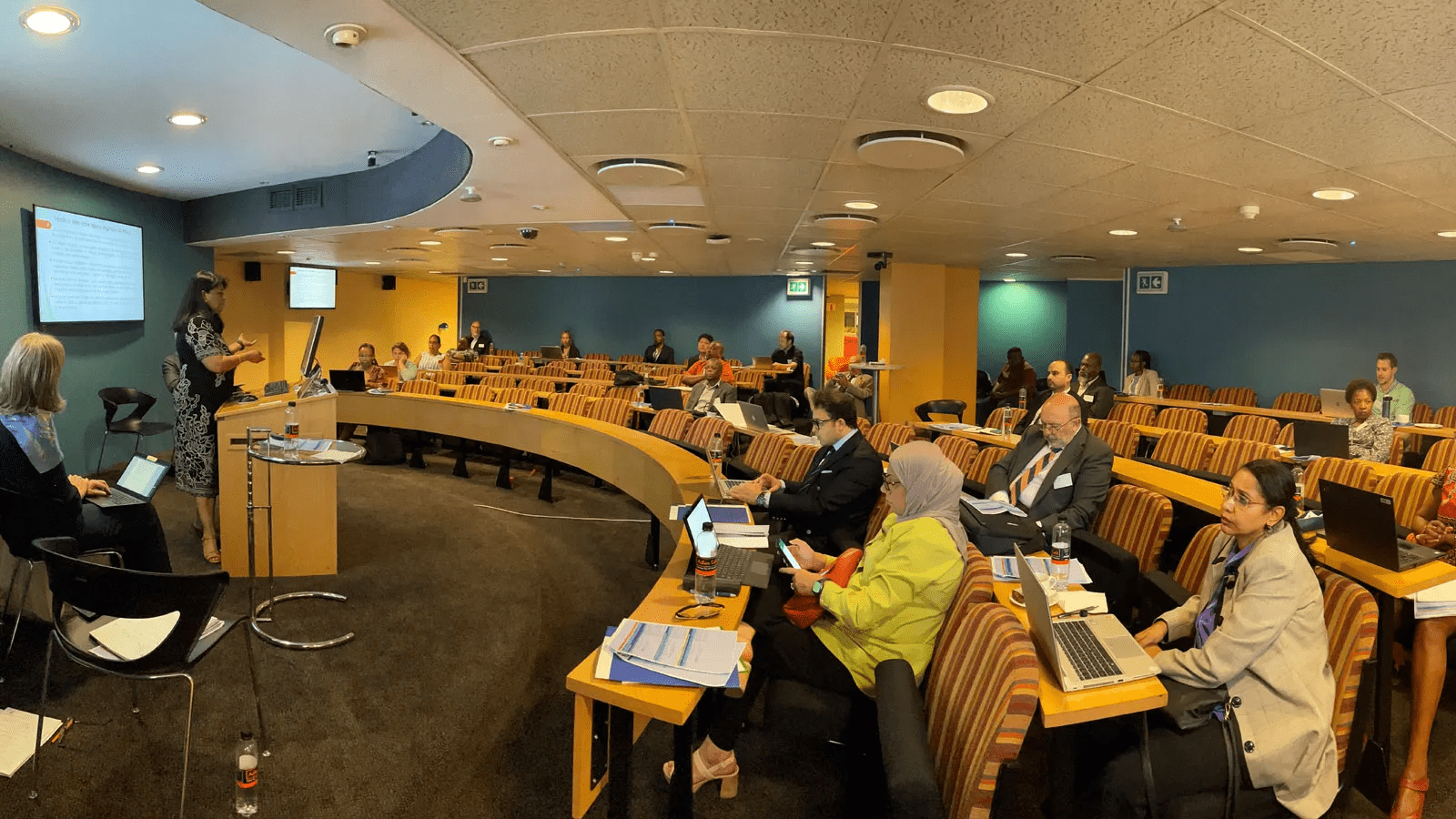
Dr Sharifa Noaman Al Emadi, executive director of DIFI, highlighted the importance of focusing on family wellbeing through a comprehensive approach, which DIFI, a member of Qatar Foundation, is tackling through policy-research and mobilisation.
She emphasised the importance of focusing on family wellbeing with holistic approaches, stressing that DIFI works to enhance family wellbeing and supports the making and development of policies related to research, scientific evidence and multiple advocacy efforts.
She also noted that demographic changes, accompanied by the shrinkage of traditional interactions between nuclear and extended families because of urbanisation and the fragility of related policies, as well as declining fertility rates and other demographic challenges, mean structural treatments and policy and programme support is required based on knowledge basis.
Speaking about the preparations for the IYF+30, Renata Kaczmarska, Focal Point of the Family at the Division for Inclusive Social Development (DISD) of the UN DESA, highlighted the importance of EGM recommendations to enrich the periodic UN Secretary General’s report on the family.
Ignacio Socias, director of Communication and International Relations at IFFD, outlined the importance of international programmes that support national development agendas “including the voice of parents and families in the discussion for better and holistic policy design, implementation and evaluation is extremely important.”
Professor Zitha Mokomane, professor at the Department of Sociology at the University of Pretoria, stressed that “while the important role of the family in society has been recognised everywhere in the world, it also needs to be substantiated through comprehensive family policies.”
Representative of the African Union Commission on Social Affairs Lefhoko Kesamang pointed out the need to develop Management Information Systems on the African Family for better data collection on family interventions at the regional level.
The Department of Sociology in the Faculty of Humanities at the University of Pretoria in cooperation with the Focal Point on the Family, Division for Inclusive Social Development (DISD) of the United Nations Department of Economic and Social Affairs (DESA), Doha International Family Institute (DIFI) and the International Federation for Family Development (IFFD) is organizing an Expert Group Meeting on “Demographic Changes and Family Wellbeing in Africa” to be held 23-25 January 2023 at the University of Pretoria in Pretoria, South Africa
The meeting is organized as part of the preparations for the thirtieth anniversary of the International Year of the Family, 2024 (IYF+30) and will build on the findings of the Expert Group Meeting held in 2020 which recommended focusing on several megatrends to guide the preparations. Those recommendations were reflected in the Reports of the Secretary-General (2020-2021). In 2021, the United Nations General Assembly resolution on the Preparations for the IYF+30 endorsed those recommendations and advised focusing on the trends of new technologies, migration, urbanization as well as demographic trends and climate change as part of the preparations for IYF+30. It is in accordance with this resolution and relevant United Nations mandates, that the Expert Group Meeting is to address demographic trends and their impact on families in Africa.
To mark the tenth anniversary of the International Year of the Family (IYF) in 1994, the African Union Commission adopted the Plan of Action on the Family in Africa which advocates for the “promotion, formulation, implementation and monitoring of policies to ensure the protection of and support to the African family so as to enable it to play its vital role more effectively in the development of Africa.”
At the time the Plan of Action on the Family in Africa was adopted, key challenges affecting the family in the region included high levels of poverty, inadequate social protection mechanisms, low levels of educational attainment, high levels of unemployment, gender inequality, rural to urban migration, displacement, family disintegration, poor sexual and reproductive health indicators and high levels of communicable diseases such as HIV and AIDS, malaria and tuberculosis.
In the three decades since the adoption of the Plan of Action, however, there have been significant socio-economic and demographic transformations that have direct and indirect implications for the well-being of families and their members in the region. It is for this reason that a focus on the family continues to be underscored in other regional instruments such as the African Union Social Policy Framework for Africa (2009) and the African Union Agenda 2063 (2013).
The planned Expert Group Meeting provides an opportunity to share good practices on policies and programmes that have improved family well-being, take stock of remaining and new family challenges, and recommend a way forward for the post-2024 period.

08:30

Pretoria
Registration and Tea
Speakers:
Prof. Sandy Africa, Deputy Dean; Faculty of Humanities, University of Pretoria
Renata Kaczmarska, Focal Point on the Family, United Nations Department of Economic and Social Affairs
Sharifa Al Emadi, Executive Director, Doha International Family Institute
Ignacio Socias, Director of Communications and International Relations, International Federation for Family Development

10:00

Pretoria
Session 1
Lefhoko Kesamang Department of Social Affairs – African Union Commission
Zitha Mokomane Department of Sociology – University of Pretoria
Moderator: Jane Wathuta, Strathmore University, Kenya

11:30

Pretoria
Session 2
Mohamed Mohieddin rofessor of Sociology and International Consultant; Egypt
Zitha Mokomane Department of Sociology, University of Pretoria
Moderator: Nicky Roman, University of the Western Cape

01:00
Lunch

01:30

Pretoria
Session 3
Sheren EL-Feki Chief of the Latin American and Caribbean Demographic Centre, Population Division of ECLAC
Elmoubasher Abu Baker Abd Farag Acting Head of Communicable Disease Control Programs, Supreme Council of Health, Qatar.
Shingairai Chigeza Department of Psychology University of Pretoria
Moderator: Ignacio Socias International Federation for Family Development

09:30

Pretoria
Session 4:
Elena Moore SUniversity of Cape Town
Dr. Achraf Othman ICT Accessibility Innovation and Research Section, Mada Center, Doha, Qatar
Moderator: Benlacence Badrane , Ibn Khaldon Center, Qatar

11:00

Pretoria
Session 5:
Mokhtar El Harras Mohamed V University, Rabat, Morocco
Pragna Rugunanan Department of Sociology, University of Johannesburg
Moderator: Renata Kaczmarska,, Focal Point on the Family -United Nations Department of Economic and Social Affairs

12:30
Lunch Break

13:30

Pretoria
Session 6
Moderator: Pragna Rugunanan Department of Sociology, University of Johannesburg
Ahmed Aref Doha International Family Institute • Charles Puttergill; Department of Sociology, University of Pretoria

15:00
End
01
How Ageism shapes the digital divide among older persons in Qatar
Dr. Achraf Othman
02
Interlinkages between Demographic Trends and Urbanization in North Africa
Ahmed Aref
03
Challenges and Advantages in Contemporary Africa, with Special Focus on North Africa
Badrane Benlahcene
04
FAMILY POLICY DEVELOPMENT IN SOUTH AFRICA
ProfS Tanusha Raniga and LAUREN GRAHAM
05
REGIONAL EXPERT GROUP MEETING ON “DEMOGRAPHIC CHANGES AND FAMILY WELLBEING IN AFRICA
PRETORIA, SOUTH AFRICA
06
Patterns of Marriage and Divorce in North African Countries
Mohamed Mohieddin
07
Migration and Demography in Africa: Interlinkages, Challenges and Opportunities
Mokhtar El Harras
08
Parenting in the Digital Era
09
Demographic Changes and Family Wellbeing in Africa
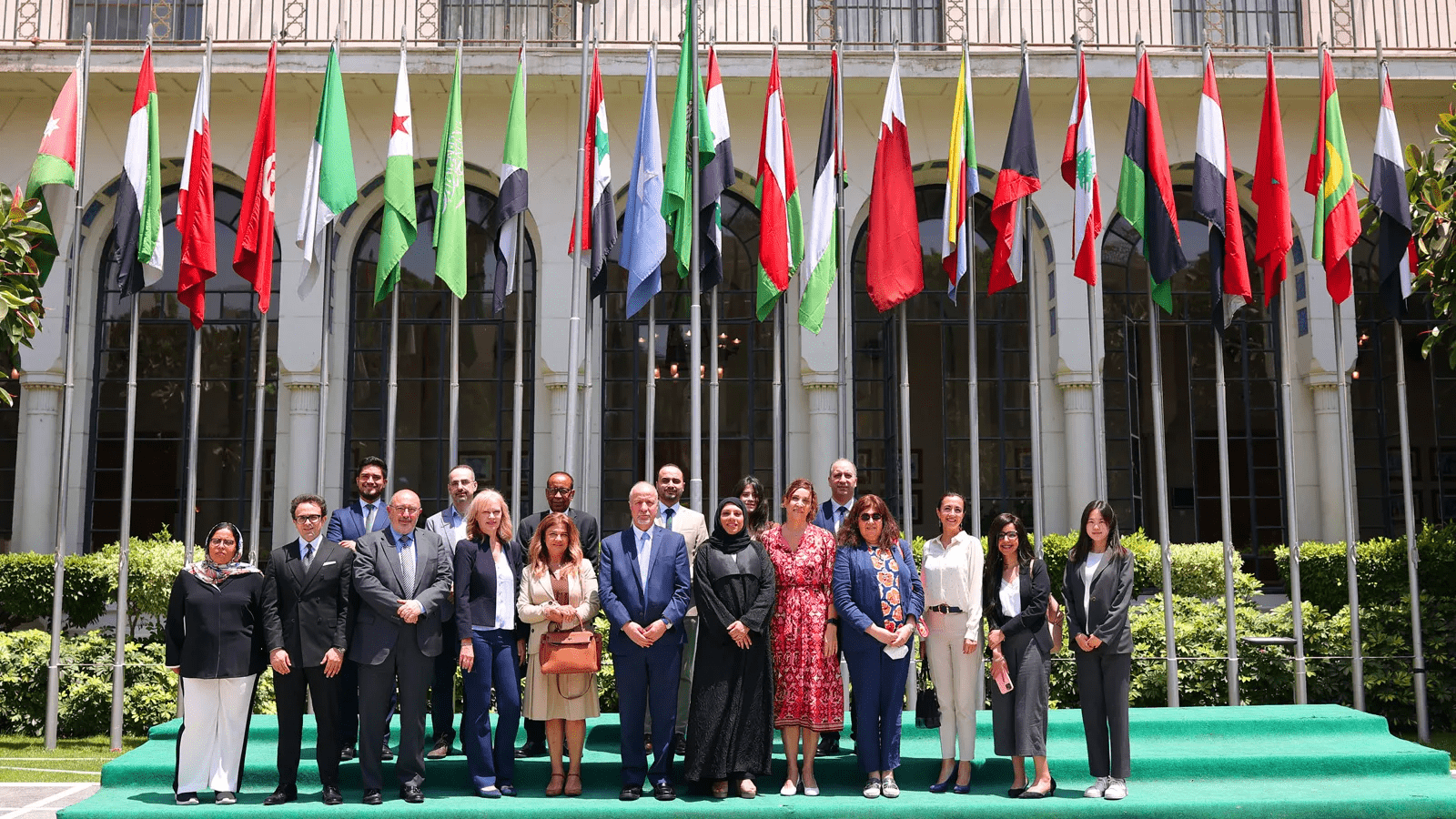
The Doha International Family Institute (DIFI), a member of Qatar Foundation for Education, Science and Community Development (QF), organized a preparatory meeting of experts to celebrate the 30th anniversary of the International Year of the Family, held in Cairo in partnership with the United Nations Department of Economic and Social Affairs and the United Nations Population Fund in the Arab States region.
In a statement, the institute stated that the two-day meeting shed light on the topics of technological change and the family in the Arab region in preparation for the convening of the international conference in Doha this year.
The meeting also included a series of discussions, namely the topics of the positive and negative effects of technology on the Arab family, a review of international experiences on digital parenting programs, the importance of technology in supporting work-family balance, and enhancing the provision of family care services for the elderly through assistive technology.

In addition, the discussions also reviewed the topics of the effects of violence and cyberbullying on the well-being of children and young people, digital addiction and its repercussions on marital and parenting relationships, social technology and its impact on family life variables and caring for the elderly in the 21st century.
The meeting concluded with the importance of expanding families use of information technology, developing family capabilities, developing guiding mechanisms to protect families, especially children and adolescents, from violence and cyberbullying, as well as investing in assistive technology to provide a better experience for the care of the elderly and inclusion of people with disabilities, creating and developing evidence-based parenting programs, examining the relationship between digital addiction and the family environment, and developing theory-informed and data-backed solutions.
In this regard, Executive Director of DIFI Dr. Sherifa Noman Al Emadi confirmed that the Institute plays a crucial role in advocating family policies within the international development agenda in cooperation with the UN in various aspects, taking into account the leading role played by the Institute in organizing the annual conferences prior to the International Year of the Family, and the accompanying preparatory events.
In turn, Professor of Information and Computing Technology at Hamad Bin Khalifa University Dr. Raian Ali stressed the need to understand the nature of family relationships and their relationship to modern technology. It is necessary to understand the interrelationship between technology use and the family environment, he stressed, in order to be able to design intervention and counseling programs on technology use and overuse. He added that digital education programs and tools must be contextual and culturally sensitive, and there is a need to research beyond general concepts of digital addiction and digital well-being, delves into details, and studies the nuances and different features of digital media, as well as family structure and values. (QNA)

08:30

Cairo
Registration
Speakers:
Dr. Sharifa Al Emadi, Executive Director, DIFI
Ms. Renata Kaczmarska, Focal Point on the Family, UN DESA
Dr. Luay Shabaneh, Regional Director, UNFPA ASRO

09:30

Cairo
Session 1

11:45
Break

11:15

Cairo
Session 2
This session will focus on the role of technology on work-family balance.
Susan K. Walker, Ph.D. Associate Professor Department of Family Social Science University of Minnesota
Mohamed Gamal Abdelmonem, Professor of Architecture, Nottingham Trent University

12:30
Lunch

13:45

Cairo
Session 3
This session will also focus on the role of technology on the adolescent and family wellbeing during COVID-19 and beyond.

09:00

Cairo
Session 4:

10:15
Break

10:45

Cairo
Session 5:
Susan K. Walker, Ph.D. Associate Professor Department of Family Social Science University of Minnesota

12:00
Lunch

12:45

Cairo
Session 6

14:00
Closing Remarks